Source Photos (L-R): Kevin Winter/Getty Images for The Recording Academy; Josh Brasted/FilmMagic; Scott Dudelson/Getty Images; Theo Wargo/Getty Images; Michael Ochs Archives/Getty Images
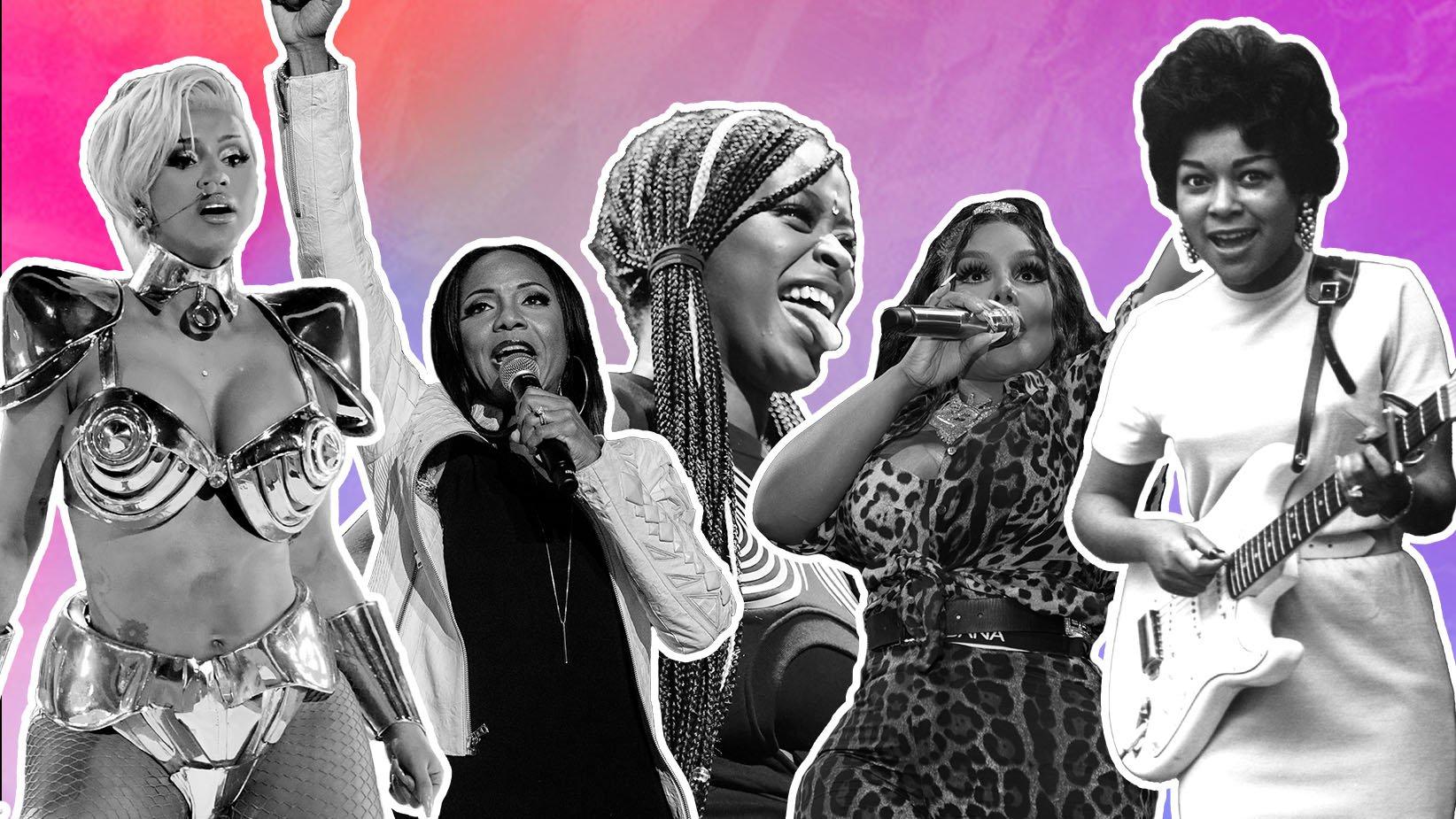
list
5 Women Essential To Rap: Cardi B, Lil' Kim, MC Lyte, Sylvia Robinson & Tierra Whack
In honor of Women’s History Month, GRAMMY.com explores the thriving world of female rap, highlighting some of the culture-shifting women who have changed the course of the genre and spotlighting one artist who is moving the genre forward.
Women have always been essential to rap and, today, they’re getting their deserved recognition more than ever before. The world of female rap has continuously contributed to the genre’s sound, fashion, commercial success — not just in comparison to their male counterparts, but across the genre as a whole — increasing its global impact.
The lyrical prowess of early pioneers such as MC Sha-Rock and MC Lyte demanded respect in a male-dominated industry, while rappers such as Queen Latifah, Monie Love and Yo-Yo advanced conscious hip-hop and confronted misogyny. Salt-N-Pepa owned their sex appeal, while Lil’ Kim introduced a feminine perspective to a sex-positive narrative that had previously been controlled by men.
The current and future landscape of women in rap appears even brighter. Gone is the genre’s unwritten rule that only one female superstar can exist at a time, and women are thriving in new ready-to-be-conquered rap territory. In 2020, Nicki Minaj and Doja Cat’s "Say So (Remix)" topped the Billboard Hot 100, marking the first time a female rap collaboration led the chart. That same year, Cardi B and Megan Thee Stallion’s "WAP" broke the record for the biggest debut steaming week in U.S. history. Today, more women rappers are finding success than ever before — from City Girls and Latto, to Saweetie and Flo Milli.
In honor of Women’s History Month, GRAMMY.com highlights some of the pioneering, culture-shifting women who have changed the course of rap and one promising up-and-comer who is at the forefront of the genre’s future.
MC Lyte: The first GRAMMY-nominated female hip-hop artist and first woman to release a solo rap album
A 16-year-old MC Lyte broke onto the rap scene with the single, "I Cram To Understand U (Sam)" in 1987. The following year, she released her debut album, Lyte As A Rock, becoming the first female rapper to release a solo album.
Lyte’s first three albums spawned hits like "Cha Cha Cha," "Paper Thin," "10% Dis" and "Poor Georgie." In 1993, the acclaimed anthem "Ruffneck" became Lyte’s third No. 1 song on the Billboard Hot Rap Singles chart and was certified gold, making her the first female rapper to achieve the feat. "Ruffneck" was also nominated for Best Rap Solo Performance at the 36th GRAMMY Awards in 1994, designating Lyte as the first-ever GRAMMY-nominated woman rapper.
MC Lyte’s conscientious records and classic hits drew critical acclaim and commercial success, making her an influence on female rap for generations to come. A true pioneer, she was honored with the I Am Hip Hop Lifetime Achievement Award at the 2013 BET Hip Hop Awards.
Sylvia Robinson: Sugar Hill Records founder and "Mother of Hip-Hop"
Rightfully nicknamed the "Mother of Hip Hop," Sylvia Robinson helped push rap into the public music arena. Robinson started out as a chart-topping R&B singer, releasing "Love Is Strange" in 1956 with her duo, Mickey & Sylvia. After a solo singing and songwriting career, Robinson founded Sugar Hill Records in the 1970s. With the label, she assembled Harlem rap trio the Sugarhill Gang and produced their 1979 hit, "Rapper’s Delight," which went on to be the first rap single to break the Billboard Hot 100 Top 40.
Besides having a hand in one of hip-hop’s first hits, Robinson was also instrumental in one of the genre’s most impactful records. In 1982, she co-produced "The Message" for Grandmaster Flash and the Furious Five. The track broke ground lyrically — detailing the gritty realities of growing up in poverty — and creatively, as it was the first rap song where the DJ was not involved in its creation, setting the stage for MCs to become the stars of hip-hop. In an interview, Grandmaster Flash conceded that without Robinson’s insistence and direction, "The Message" would never have been created.
Lil’ Kim: The "Queen of Rap" who reinvented hip-hop fashion
Salt-N-Pepa introduced feminist sex appeal to hip-hop, but Lil’ Kim took it a step further. The Brooklyn native burst onto the rap scene in 1996 with her solo debut album Hard Core, quickly gaining attention with her raunchy lyrics and feminine style. Prior to Kim, rappers like Queen Latifah and MC Lyte had gained entry to the male-dominated hip-hop space with masculine swagger and fashion. Choosing instead to steal the spotlight with jaw-dropping and sexy styles, Kim created a new avenue for women rappers — owning their sexuality — which is still mimicked today.
"[Lil' Kim] was the first time for me that I saw that much sexiness in female hip-hop," Trina, whose own explicit lyrics catapulted her to success in the late '90s and early 2000s, recounted in "The Real Queens of Hip-Hop," TV special. "She created and started that."
Kim also pushed the boundaries for female rap music success. Her debut album Hard Core debuted at No. 11 on the Billboard 200, the highest-ranking debut for a woman MC at the time. Kim was also the first female rapper to have three consecutive No. 1 hits on the Billboard Hot Rap Tracks chart; her GRAMMY-winning collaboration with Christina Aguilera, P!nk and Mýa, "Lady Marmalade," was the best-selling single of 2001.
Cardi B: Pushing female rap to new commercial heights
Cardi B’s commercial success ushered in a new era of mainstream domination and profitability for female rappers. Creating her own celebrity through social media and reality TV, the Bronx native made history with her 2018 debut album, Invasion of Privacy. The record was the best-selling female rap album of the 2010s and won Best Rap Album at the 61st GRAMMY Awards in 2019, making Cardi the first solo female rapper to win the award. Her breakout hit, 2017’s "Bodak Yellow," also became the first diamond-certified single by a woman rapper. She’s since tacked on two other diamond records: Maroon 5’s "Girls Like You" and "I Like It" featuring Bad Bunny and J. Balvin.
Cardi’s commercial success, brand partnerships and social media appeal helped break hip-hop’s one woman superstar at a time mold by proving female rap’s lucrative potential to the masses. As Cardi tweeted in 2019, "I didn’t say I pave[d] the way for female rappers, but I deff gave the hood and women hope. Nikkas wasn’t collabing with female rappers. Labels where [sic] signing female rappers and putting them in a shelf and not focusing on them, not giving them proper attention… How many female rappers before me where [sic] getting chances or getting pushed? They wasn’t believing and now they are!"
Tierra Whack: Rising rap artist leading the next generation
Tierra Whack continues to push the envelope with both her eclectic style and lyrics. At a time when sex-positive femcees rule the charts, Whack instead leads with creativity and quirkiness. Innovative and wildly eccentric music videos ( à la Missy Elliott) are an artistic staple for the 26-year-old, who earned her first GRAMMY nomination for Best Music Video with her 2017 "Mumbo Jumbo" visual.
Whack first gained fame for her freestyling and battle rap skills in her native Philadelphia , but her 15-minute debut album, Whack World, skyrocketed her to viral acclaim. By blurring genre lines — most recently through her Rap?, Pop? and R&B? EPs —Whack is poised to remain at the forefront of hip-hop’s future and brings a fresh wave of variety and uniqueness to the female rap landscape.
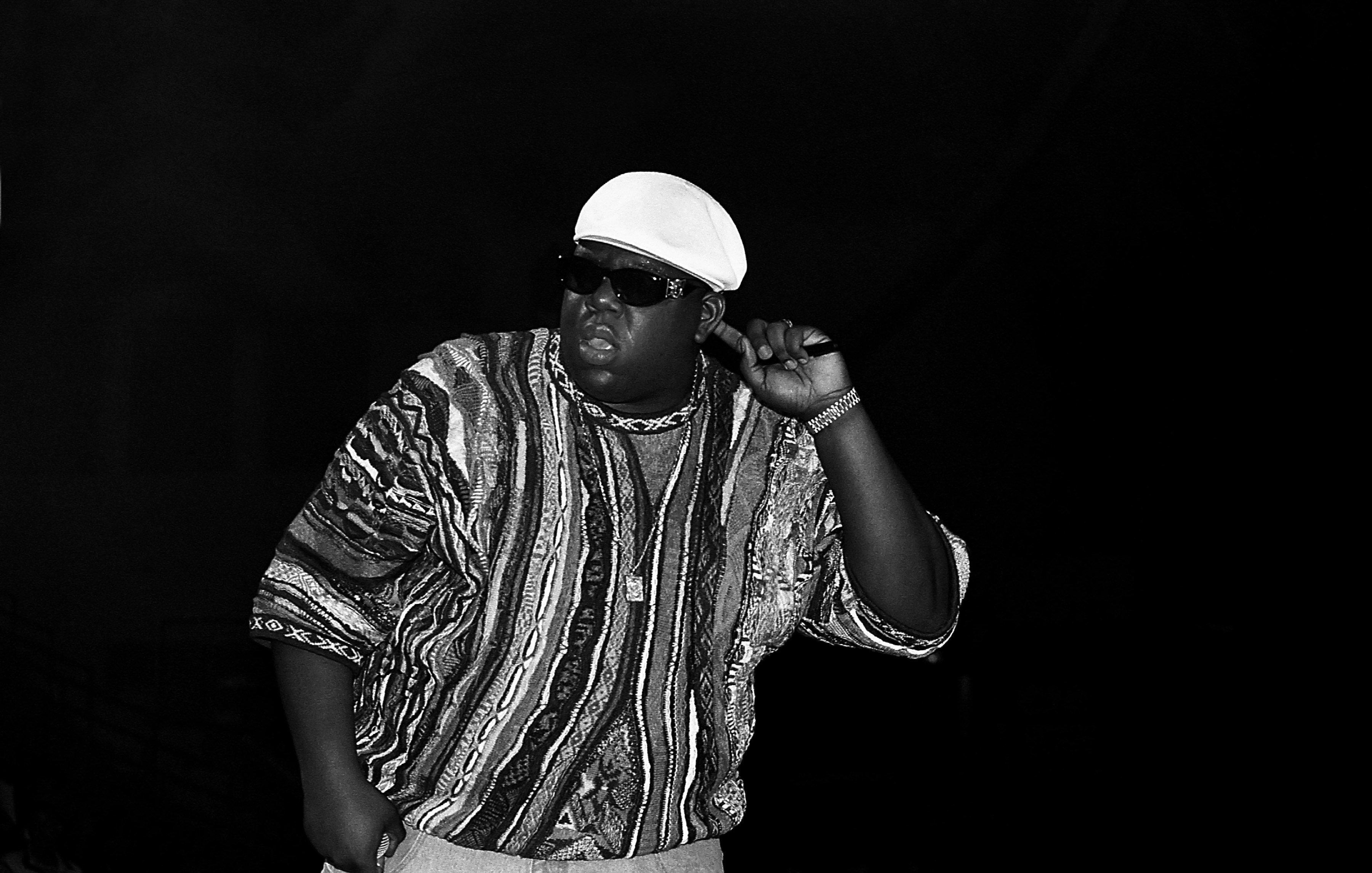
Photo: Raymond Boyd/Getty Images
feature
Why Is Biggie's 'Ready To Die' So Great? Open Mike Eagle, Ron "Amen-Ra" Lawrence & Others Weigh In On The Album's 30th Anniversary
"'Ready to Die' is a war cry for a youth who are put into situations that they don't see a way out of," Fatboi Sharif says of the Notorious B.I.G.'s seminal debut. He and 10 others share their thoughts on the legacy of 'Ready To Die.'
The Notorious B.I.G.’s groundbreaking debut album Ready to Die was released 30 years ago this month — an anniversary that will certainly invite much celebration and consideration. Since 1994, the album has been reviewed, discussed, and remembered from almost every possible angle. We’ve seen the definitive oral history of its creation; its making has also been chronicled in book form. There’s been a mini-documentary or two. The album has been remastered and reissued over and over. Biggie's work has been interpreted by a classical orchestra.
So what’s left?
After most of its stories have been told, the important thing about Ready to Die is what it has meant to people. GRAMMY.com surveyed rappers, producers, critics, managers, and others to see how they heard and experienced Ready to Die. What did it mean at the time to an underground rap-loving teen in the Midwest? To a producer who was just about to start making beats for Biggie himself? And for those who weren’t around when the record debuted, how did it hit them? What did it mean to discover Biggie outside of his original time and context?
We asked these people: "What do you love about Ready to Die?" The emphasis was on the "you." No received wisdom, no half-remembered phrases from long-ago reviews. What specifically was it about this record that grabbed you initially, and stays with you still?
Their answers reflect the depth and power of Big’s work, and demonstrate that people are still thinking about Ready to Die in new ways — even three decades after its release.
Answers have been slightly edited for length and clarity.
Mickey Factz is an influential rapper who was one of the major voices of what is sometimes called "the blog era." He is also a pioneer in teaching how to rap with his Pendulum Ink school.
Being a native New Yorker, Biggie Smalls was my voice from the age of 11 and 12 years old. I’d imagine his tales of life mirror this new generation’s rappers and the 11 and 12 year olds that listen to them. The rawness of his vocals. The conversational way in which he rapped. The stories. The vulgarness.
Again, I was 12, sneaking my father’s CD to play the project. I wanted to at first hear "Juicy" and "Big Poppa" and ended up loving "Unbelievable" and "The What." I chuckled at Biggie and Lil Kim’s interlude of sex. I was amazed at the storytelling of "Gimmie The Loot" and "Warning." And being 12 without any internet, I literally thought Big died after "Suicidal Thoughts" — I didn’t know if it was a skit or not.
I didn’t know these types of things could be done in a studio. I didn’t know what a studio was. Big introduced me to that. That is why I loved Ready To Die. It inspired me to be who I am today.
Ron "Amen-Ra" Lawrence is a veteran producer who, just a few short years after ‘Ready to Die,’ became a key part of Bad Boy Records’ Hitmen — the production team that brought the label to its greatest heights. With his partner Deric "D-Dot" Angelettie, Lawrence produced Biggie’s "Hypnotize."
When Ready to Die dropped, it was a game-changer. As a young producer in New York, I was blown away by Biggie's raw storytelling and the gritty, soulful production.
The album felt like a cinematic experience, pulling you into the harsh realities of Brooklyn life. Every track hit hard, and you could feel Biggie’s hunger and determination in every bar. It wasn’t just an album — it was a movement, a defining moment for East Coast hip-hop that set a new standard for the game.
Explore The Artists Who Changed Hip-Hop
50 Artists Who Changed Rap: Jay-Z, The Notorious B.I.G., Dr. Dre, Nicki Minaj, Kendrick Lamar, Eminem & More
Hip-Hop Just Rang In 50 Years As A Genre. What Will Its Next 50 Years Look Like?

Watch Outkast Humbly Win Album Of The Year For 'Speakerboxxx/The Love Below' In 2004 | GRAMMY Rewind
A Brief History Of Hip-Hop At 50: Rap's Evolution From A Bronx Party To The GRAMMY Stage
GRAMMY Museum To Celebrate 50 Years Of Hip-Hop With 'Hip-Hop America: The Mixtape Exhibit' Opening Oct. 7

Watch Eminem Show Love to Detroit And Rihanna During Best Rap Album Win In 2011 | GRAMMY Rewind
Listen To GRAMMY.com's 50th Anniversary Of Hip-Hop Playlist: 50 Songs That Show The Genre's Evolution
14 New Female Hip-Hop Artists To Know In 2023: Lil Simz, Ice Spice, Babyxsosa & More
6 Artists Expanding The Boundaries Of Hip-Hop In 2023: Lil Yachty, McKinley Dixon, Princess Nokia & More
The 10 Most Controversial Samples In Hip-Hop History

Watch Lauryn Hill Win Best New Artist At The 1999 GRAMMYs | GRAMMY Rewind
19 Concerts And Events Celebrating The 50th Anniversary Of Hip-Hop
Founding Father DJ Kool Herc & First Lady Cindy Campbell Celebrate Hip-Hop’s 50th Anniversary
A Guide To New York Hip-Hop: Unpacking The Sound Of Rap's Birthplace From The Bronx To Staten Island
A Guide To Southern California Hip-Hop: Definitive Releases, Artists & Subgenres From L.A. & Beyond
10 Crucial Hip-Hop Albums Turning 30 In 2023: 'Enter The Wu-Tang,' 'DoggyStyle,' 'Buhloone Mindstate' & More
The Nicki Minaj Essentials: 15 Singles To Showcase Her Rap And Pop Versatility
11 Hip-Hop Subgenres To Know: From Jersey Club To G-Funk And Drill
5 Essential Hip-Hop Releases From The 2020s: Drake, Lil Baby, Ice Spice, 21 Savage & More
A Guide To Southern Hip-Hop: Definitive Releases, Artists & Subgenres From The Dirty South
A Guide To Bay Area Hip-Hop: Definitive Releases, Artists & Subgenres From Northern California
A Guide To Texas Hip-Hop: Definitive Releases, Artists & Events

Ludacris Dedicates 2007 Best Rap Album GRAMMY To His Dad | GRAMMY Rewind
Unearthing 'Diamonds': Lil Peep Collaborator ILoveMakonnen Shares The Story Behind Their Long-Awaited Album
10 Bingeworthy Hip-Hop Podcasts: From "Caresha Please" To "Trapital"
Revisiting 'The Miseducation Of Lauryn Hill': Why The Multiple GRAMMY-Winning Record Is Still Everything 25 Years Later
10 Must-See Exhibitions And Activations Celebrating The 50th Anniversary Of Hip-Hop
5 Artists Showing The Future Of AAPI Representation In Rap: Audrey Nuna, TiaCorine & More
'Invasion of Privacy' Turns 5: How Cardi B's Bold Debut Album Redefined Millennial Hip-Hop
10 Songs That Show Doja Cat’s Rap Skills: From "Vegas" To "Tia Tamara" & "Rules"
6 Must-Watch Hip-Hop Documentaries: 'Hip-Hop x Siempre,' 'My Mic Sounds Nice' & More...
Essential Hip-Hop Releases From The 2010s: Ye, Cardi B, Kendrick Lamar & More
6 Takeaways From Netflix's "Ladies First: A Story Of Women In Hip-Hop"
How Drake & 21 Savage Became Rap's In-Demand Duo: A Timeline Of Their Friendship, Collabs, Lawsuits And More
5 Takeaways From Travis Scott's New Album 'UTOPIA'
Essential Hip-Hop Releases From The 2000s: T.I., Lil Wayne, Kid Cudi & More
Songbook: How Jay-Z Created The 'Blueprint' For Rap's Greatest Of All Time
Ladies First: 10 Essential Albums By Female Rappers

How Megan Thee Stallion Turned Viral Fame Into A GRAMMY-Winning Rap Career | Black Sounds Beautiful
How Hip-Hop Took Over The 2023 GRAMMYs, From The Golden Anniversary To 'God Did'
5 Things We Learned At "An Evening With Chuck D" At The GRAMMY Museum
Remembering De La Soul’s David Jolicoeur, a.k.a. Dave and Trugoy the Dove: 5 Essential Tracks
Catching Up With Hank Shocklee: From Architecting The Sound Of Public Enemy To Pop Hits & The Silver Screen
Meet The First-Time GRAMMY Nominee: GloRilla On Bonding with Cardi B, How Faith And Manifestation Helped Her Achieve Success
Hip-Hop's Secret Weapon: Producer Boi-1da On Working With Kendrick, Staying Humble And Doing The Unorthodox
Essential Hip-Hop Releases From The 1990s: Snoop Dogg, Digable Planets, Jay-Z & More
10 Albums That Showcase The Deep Connection Between Hip-Hop And Jazz: De La Soul, A Tribe Called Quest, Kendrick Lamar & More
Hip-Hop Education: How 50 Years Of Music & Culture Impact Curricula Worldwide
Women In Hip-Hop: 7 Trailblazers Whose Behind-The-Scenes Efforts Define The Culture

Watch Flavor Flav Crash Young MC's Speech After "Bust A Move" Wins In 1990 | GRAMMY Rewind
Essential Hip-Hop Releases From The 1980s: Slick Rick, RUN-D.M.C., De La Soul & More
Lighters Up! 10 Essential Reggae Hip-Hop Fusions

How Lil Nas X Turned The Industry On Its Head With "Old Town Road" & Beyond | Black Sounds Beautiful
9 Teen Girls Who Built Hip-Hop: Roxanne Shante, J.J. Fadd, Angie Martinez & More
Essential Hip-Hop Releases From The 1970s: Kurtis Blow, Grandmaster Flash, Sugarhill Gang & More
Killer Mike Says His New Album, 'Michael,' Is "Like A Prodigal Son Coming Home"
5 Takeaways From 'TLC Forever': Left-Eye's Misunderstood Reputation, Chilli's Motherhood Revelation, T-Boz's Health Struggles & More
Open Mike Eagle has spent his music career pushing the boundaries of the hip-hop underground with his critically beloved brand of "art rap." He also co-founded "The New Negroes," a standup-meets-music variety show that aired on Comedy Central, and created the Stony Island Audio podcast network.
Honestly I never loved this album. It was bleak at a time when things were also bleak for me. I gravitated to albums that activated my imagination more than ones that validated the darkness I was already seeing. He was ready to die but I wasn't.
I enjoyed the parts where it felt like he was rapping on the street corner. I liked him going back and forth with Method Man on "The What," and "Unbelievable" made me want to hear Big and Primo make an album baby. In my high school there was a Biggie contingent and a Pac contingent, and this third contingent with me and my weird friends that didn't like either because we were listening to Busta Rhymes and the Fugees and Wu-Tang. We listened to Jeru and OGC (who we heard got beat up by Bad Boy goons). We wore ski goggles and freestyled on the train.
I'm a grown-up now and I'm too smart and tired to see things in false dichotomies. I understand how important this album is in that it charted a path for a rapper with street-honed skills can also make summer BBQ anthems and legitimate intentional club hits. It's incredibly important but I never loved it. God bless the dead.
Fatboi Sharif is a young New Jersey rapper whose creepy, evocative writing and dynamic live performances have garnered him a significant fanbase and mainstream attention over the past several years. Like Big, he has a taste for both the jazzy and the macabre.
Ready to Die is certainly an album that has stood the test of time, and for me it's as relevant now as it has ever been. What I've always loved about the album is the picture it paints cinematically, like an audio film. I've always been amazed how flawlessly the themes connect and flow without missing one piece of the element.
The title of the album alone speaks volumes with just the social and financial situation going on in the inner city during that time period of the ‘90s that trickled from the late ‘80s. Ready to Die is a war cry for a youth who are put into situations that they don't see a way out of.
From themes of paranoia ("Warning," "Ready to Die," "Everyday Struggle"), mental illness ("Suicidal Thoughts"), as well as celebrating making it through all the madness on the other side ("Juicy"), Ready to Die is a perfect blender of thoughts and emotions that puts you right in that time period but doesn't sound dated. It's a landmark album that will continue to be studied and influence generations for eternity.
Learn more: A Guide To New York Hip-Hop: Unpacking The Sound Of Rap's Birthplace From The Bronx To Staten Island
Your Old Droog is a prolific Brooklyn rapper whose mind-bendingly clever rhymes have earned him co-signs from Madlib, Black Thought, Pharoahe Monch, and late legends MF DOOM and Sean Price.
Ready to Die is the first rap album I loved, and really what indoctrinated me into the genre. The rhymes, the storytelling, thinking it was two different people rhyming on "Gimme the Loot"… I remember eating rice ‘n beans at my friend’s mother’s house when I was 12 years old and bugging out over the lyrics.
You heard the name "Biggie" ad nauseam, you knew "Juicy" and you were very aware of the tragedy that happened with him and 2Pac — but listening to that album really opened a portal into his artistry.
That same Puerto Rican kid also played "Who Shot Ya" for me for the first time as well, which wasn’t on the album but I feel like it’s closely related. I think I bought the album because I wanted to hear the "One More Chance" remix, but "One More Chance" original version and "Everyday Struggle" ended up being my favorites. "Suicidal Thoughts" was mind blowing too — no pun.
It’s really a dark album at its core but I think it does a great job highlighting a musical and poetic savant. The vocals, the technique and diction: I think it’s a document of one of the greatest MCs of all time.
Lord Sko is a young rapper and self-proclaimed "true-school hip-hop revivalist," he combines the best of old and new in his music.
Ready to Die is one of my favorite hip-hop albums of all time because of how vivid it is lyrically. When I first started to do the knowledge on hip-hop, this was one of the first albums that I studied and it was easy to digest as a young kid. With that being said, the genius of the album has aged beautifully and it is a body of work I still consistently go back to when I need some inspiration.
Dylan "Cinemasai" Green is a rap and film journalist, an appropriate combination when discussing a man who dubbed himself the "rap Alfred Hitchcock." Green is a contributor at Pitchfork and the creator of the podcast "Reel Notes." He is the author of ‘Reel Notes: Culture Writing on the Margins of Music and Movies.’
Everything about Biggie — from his flows to his vocal tone to his punchlines — is about being cool, calm, and collected. I love Ready to Die because it pits that persona against thoughts and trauma that gradually gnaw away at Big's subconscious. The triumph over adversity on "Juicy" scrapes up against the depression and self-doubt of "Everyday Struggle"; he's smooth as silk laying down game on "Big Poppa," but also willing to take it to the street with anybody on a song like "Who Shot Ya?"
It's not a concept album, but Ready to Die paints such a complete portrait of a person, it's hard to believe it's a debut album. Big felt fully formed.
Latest In Rap Music, News & Videos
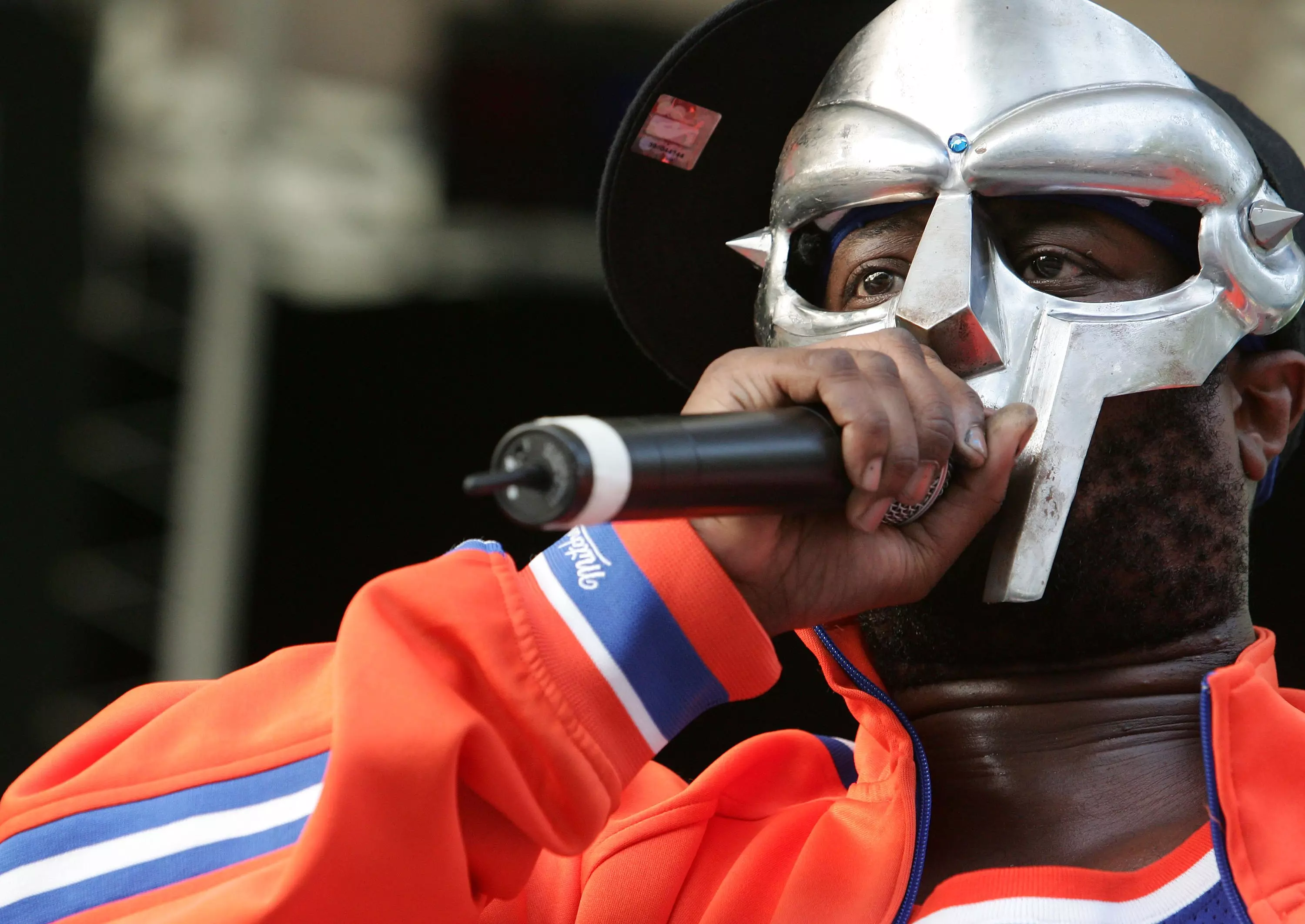
10 Facts About MF DOOM's 'Mm.Food': From Special Herbs To OG Cover Art
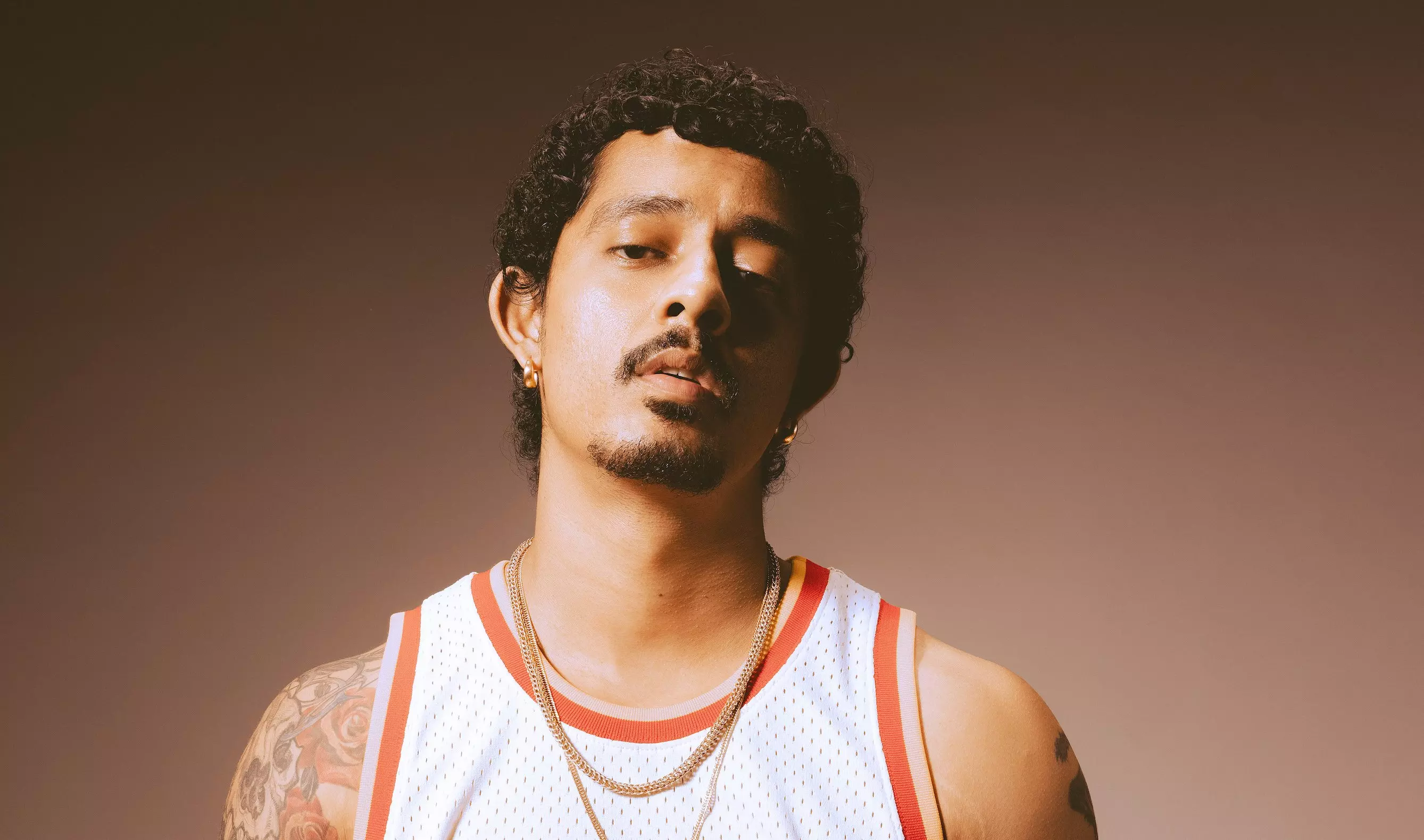
6 Indian Hip-Hop Artists To Know: Hanumankind, Pho, Chaar Diwaari & More
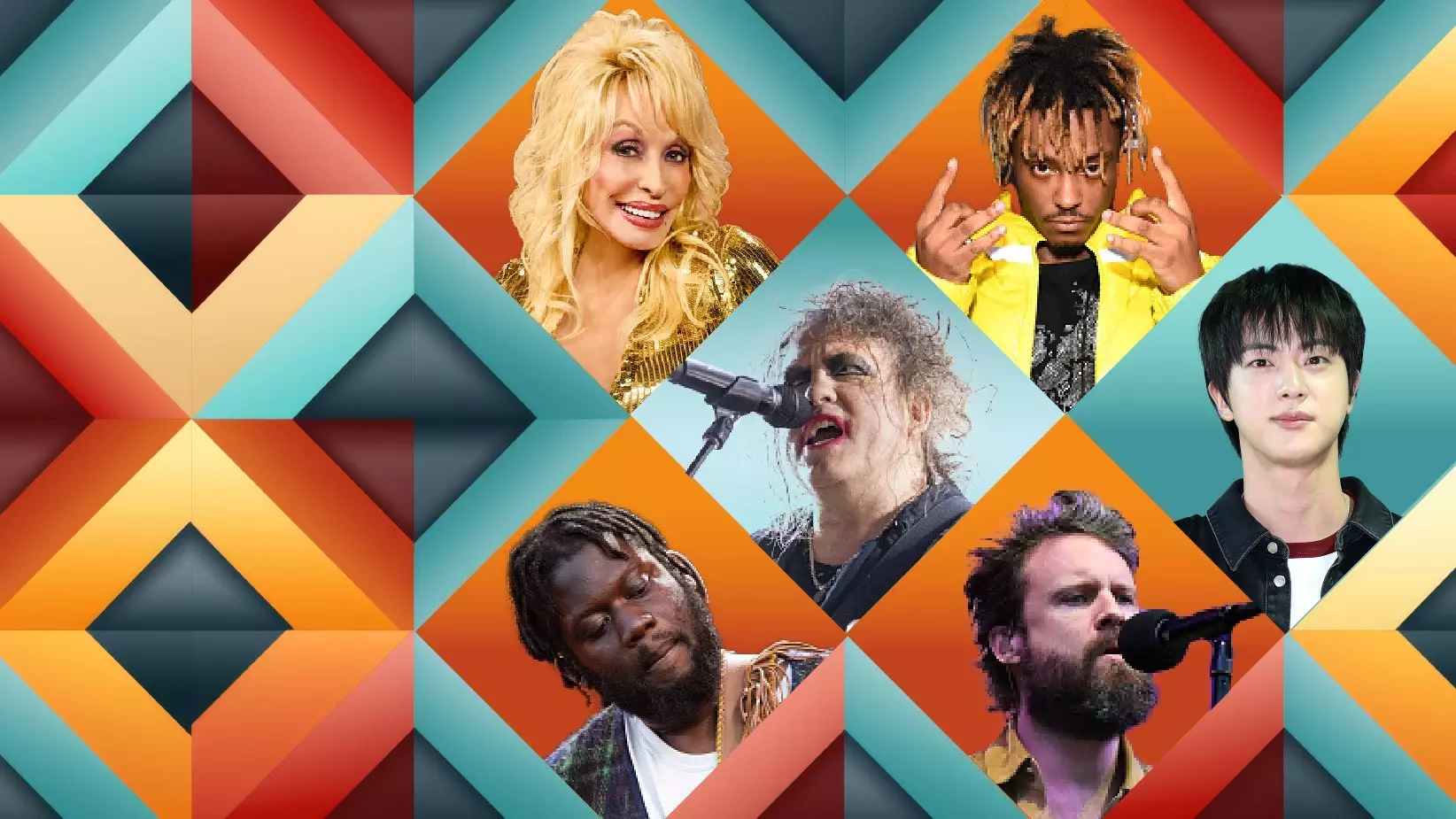
14 Must-Hear Albums In November: The Cure, Dolly Parton, Jin Of BTS, Ab-Soul, & More

Blxst Reveals His Favorite Studio Monitors
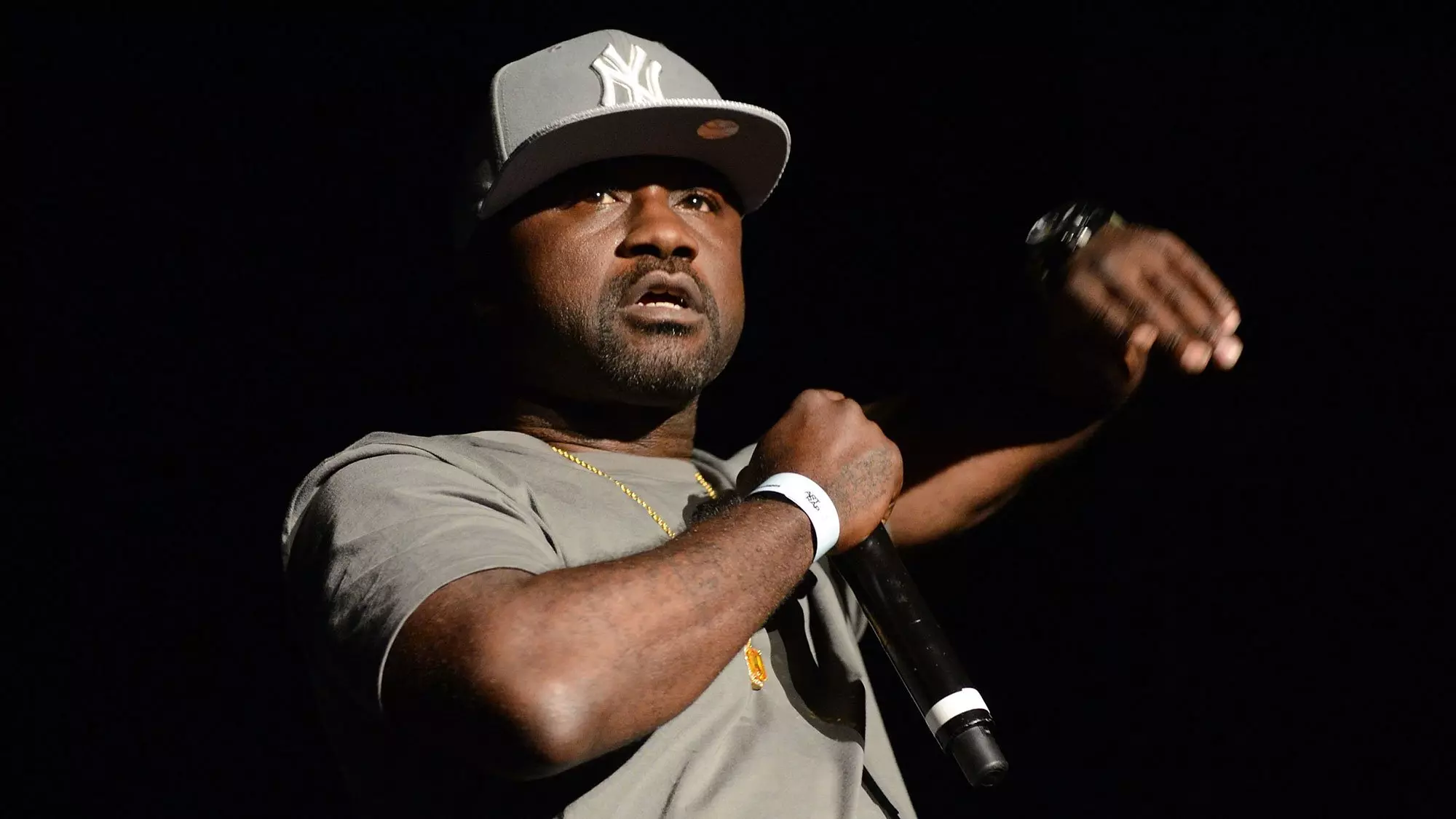
Living Legends: Havoc Talks Mobb Deep’s Legacy & The Double-Edged Life Of A Rapper-Producer
Jessica McKinney is a music journalist who has been on staff at BET, Vibe, and Complex, among a long list of other credits.
I was born a year after Ready to Die came out, so I didn’t really get into it until about a decade later. I’m sure New Yorkers who were around when it dropped have their own strong memories, but even as an outsider, I could feel what a big moment it was. I first heard tracks like "Big Poppa" and "Juicy" on the radio, and I was hooked by their catchiness. As I grew up, I realized what made those songs so special was how Biggie mixed soulful samples with gritty street raps.
I remember my mom pointing out the samples and singing along, which didn’t fully click with me back then, but now I see how that mix of sounds made the album so timeless. It also continues to bridge generational gaps. And even though I had no personal experience with the themes in songs like "Suicidal Thoughts," Biggie’s storytelling still struck a chord. As a fan of rap and hip-hop, what I appreciate most about Ready to Die — beyond Biggie's undeniable lyrical prowess and effortlessly smooth delivery — is how its groundbreaking influence continues to shape the music we hear today.
Saleem "Baba" Gyau is an A&R manager at Roc Nation and a manager of some of the most talented artists in hip-hop, including Roc Marciano, Fly Anakin, and Kool G. Rap.
The 30th anniversary of the Notorious B.I.G.’s Ready To Die is a significant milestone. This album is a timepiece for me because I was already hipped to BIG when "Party N Bulls—" dropped in '93, during my sophomore year in college at UMES. Fast forward to 1994, the year I eventually dropped out — this album was introspective and sometimes aided me on missions of mischief.
My affinity for Brooklyn and how it was described enchanted me to the point that Brooklyn is now my home. The anniversary is a moment to reflect on its impact and the enduring legacy of Biggie’s artistry.
Eric and Jeff Rosenthal, aka ItsTheReal, are storytellers and interviewers whose work has encompassed sketch comedy, writing, and innovative podcasts. Their most recent major work is the award-winning "The Blog Era," a narrative podcast that covers the hip-hop that thrived between the eras of Napster and the streaming services. They also host a show, "2 Jews & 2 Black Dudes Review the Movies," with Biggie’s labelmates and contemporaries The LOX.
Biggie Smalls is the illest. Last week, Technician the DJ warmed up the crowd before The LOX performed at New York City's Terminal 5. He played bits of 50 Cent, Tupac and DMX, but what got the beyond-sold-out crowd into an absolute frenzy was throwing on the instrumental from the Notorious B.I.G.'s "Warning." As Tech used his fader to go in and out of muting the track, the crowd created a tidal wave of sound, rapping every syllable of the song as if it was theirs, as if they were threatening a rival army, as if the song came out yesterday. That song — and the album it appeared on, Biggie's debut Ready to Die — turns 30 years old this week.
Biggie himself only lived long enough to see 24. It's easy — and appropriate — to mourn the life that Big could have led, had he not been heinously murdered. But when we listen to Ready to Die, we celebrate the youth. We love the excitement, the bravado and the passion of someone who both cared so much and didn't give a f—. That's youth. Youth is a genre still so new that a whole project could change the trajectory of society. Youth is the guts to make it happen. Youth is pushing the boundaries in lyrics. Youth is painting beautiful imagery of the darkest situations. Youth is dedicating a whole skit to the sounds of a girl riding the artist in ecstasy, calling him a "chronic smokin', Oreo cookie eatin', pickle juice drinkin', chicken gristle eatin', biscuit suckin' mothaf—a."
We love transporting back in time to when we were young too. When hip-hop still felt like it was on the cusp of something bigger, not the juggernaut we all know today. When a rapper like Biggie felt unique and representative of his small part of town thanks to his flows and his references and his dress. We love the poetry of a song like "Big Poppa" and the fireworks that come from collaborating with Method Man on "The What." And we love the wholesomeness, the purity and the possibilities that exist within "Juicy," a track that went on to become a defining crossover anthem. We choose to ignore a generation of fly-over-staters who co-opted that song; instead we feel the words of a young man who spoke so vividly about a reality that would transcend time and place.
Happy 30th to an album and an energy that lives on. Long Live Biggie Smalls.
Latest News & Exclusive Videos
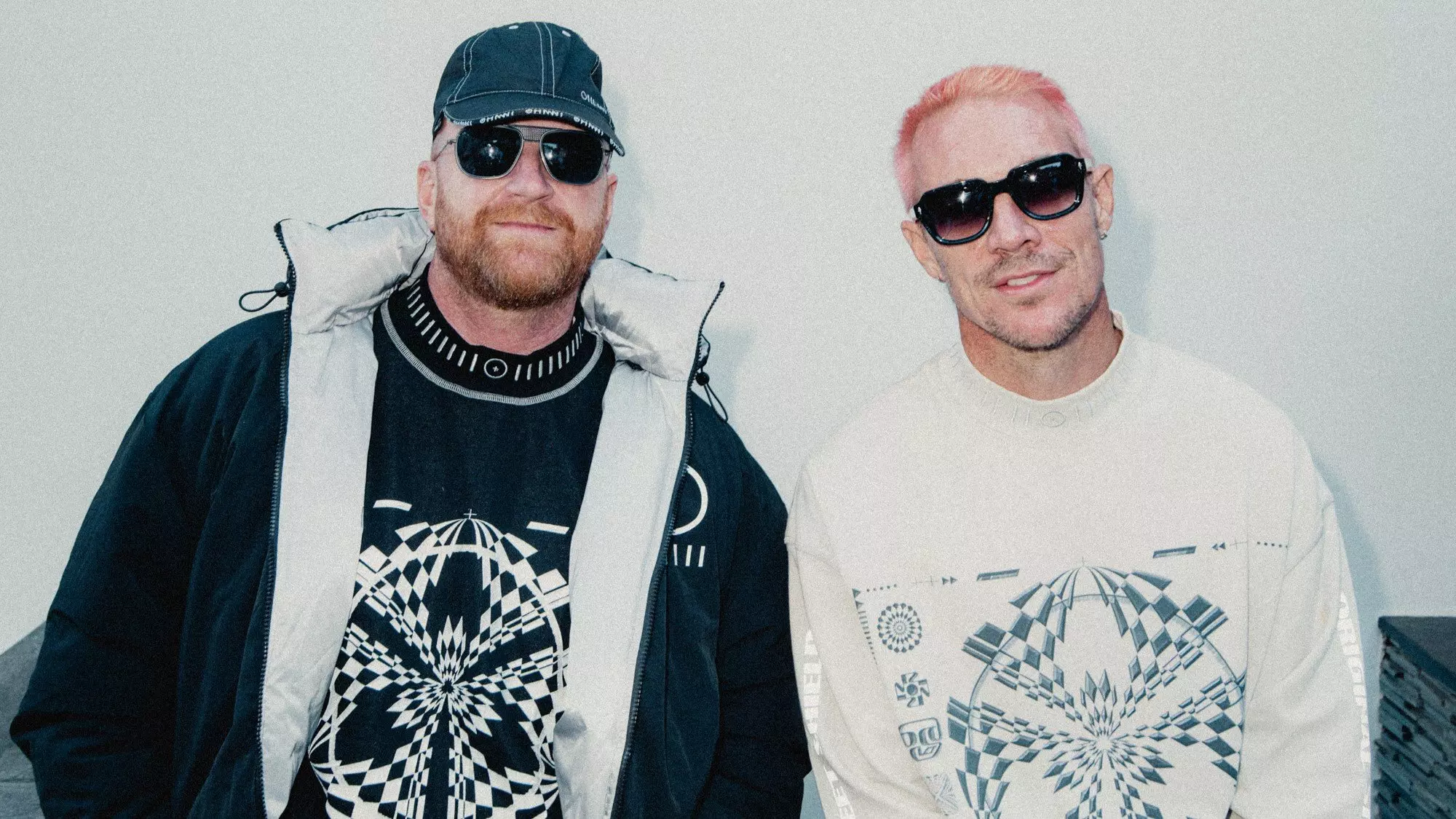
How Major Lazer's 'Guns Don't Kill People…Lazers Do' Brought Dancehall To The Global Dance Floor

YOASOBI Performs "Idol" | Global Spin
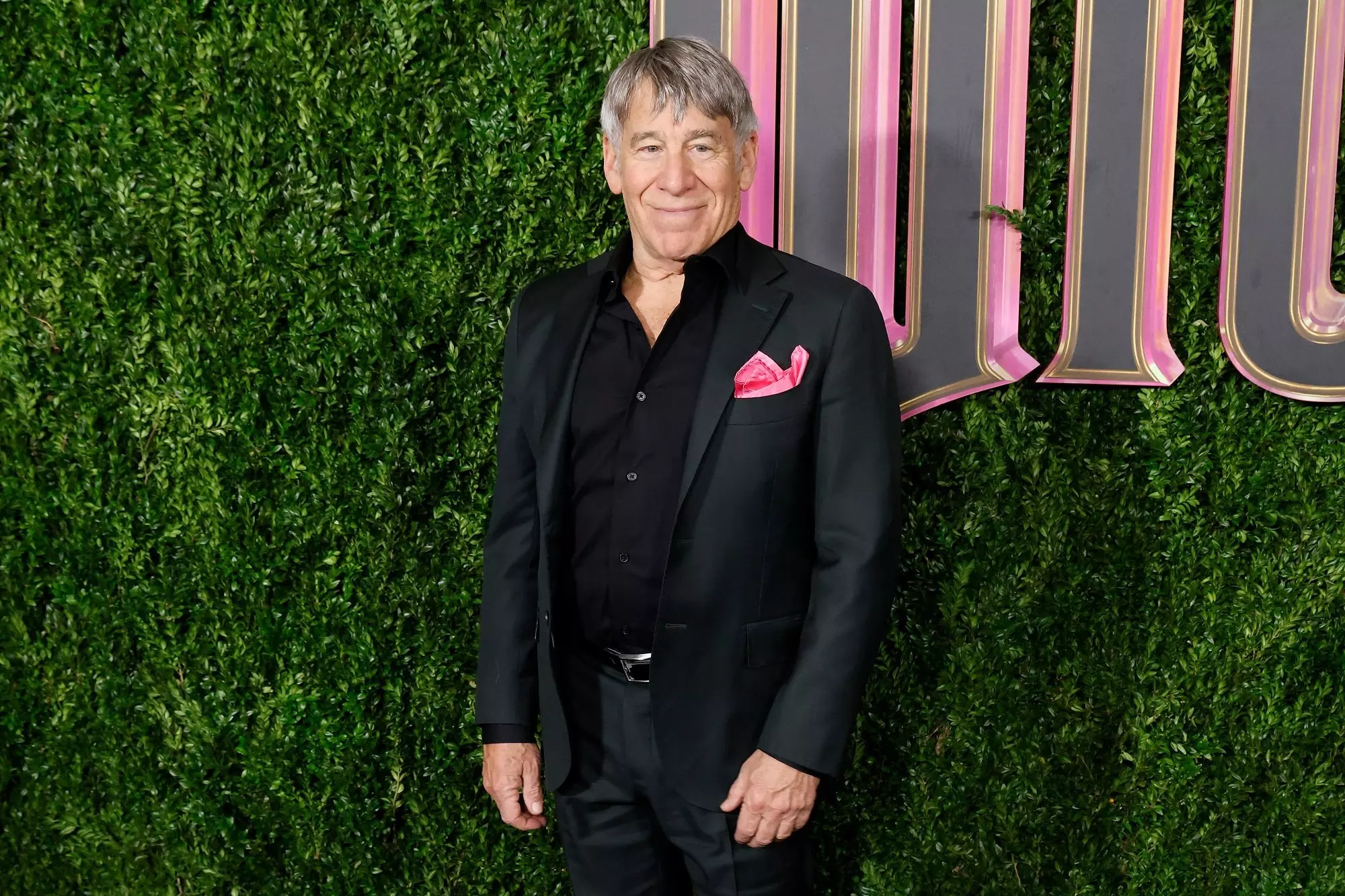
'Wicked' Composer Stephen Schwartz Details His Journey Down The Yellow Brick Road
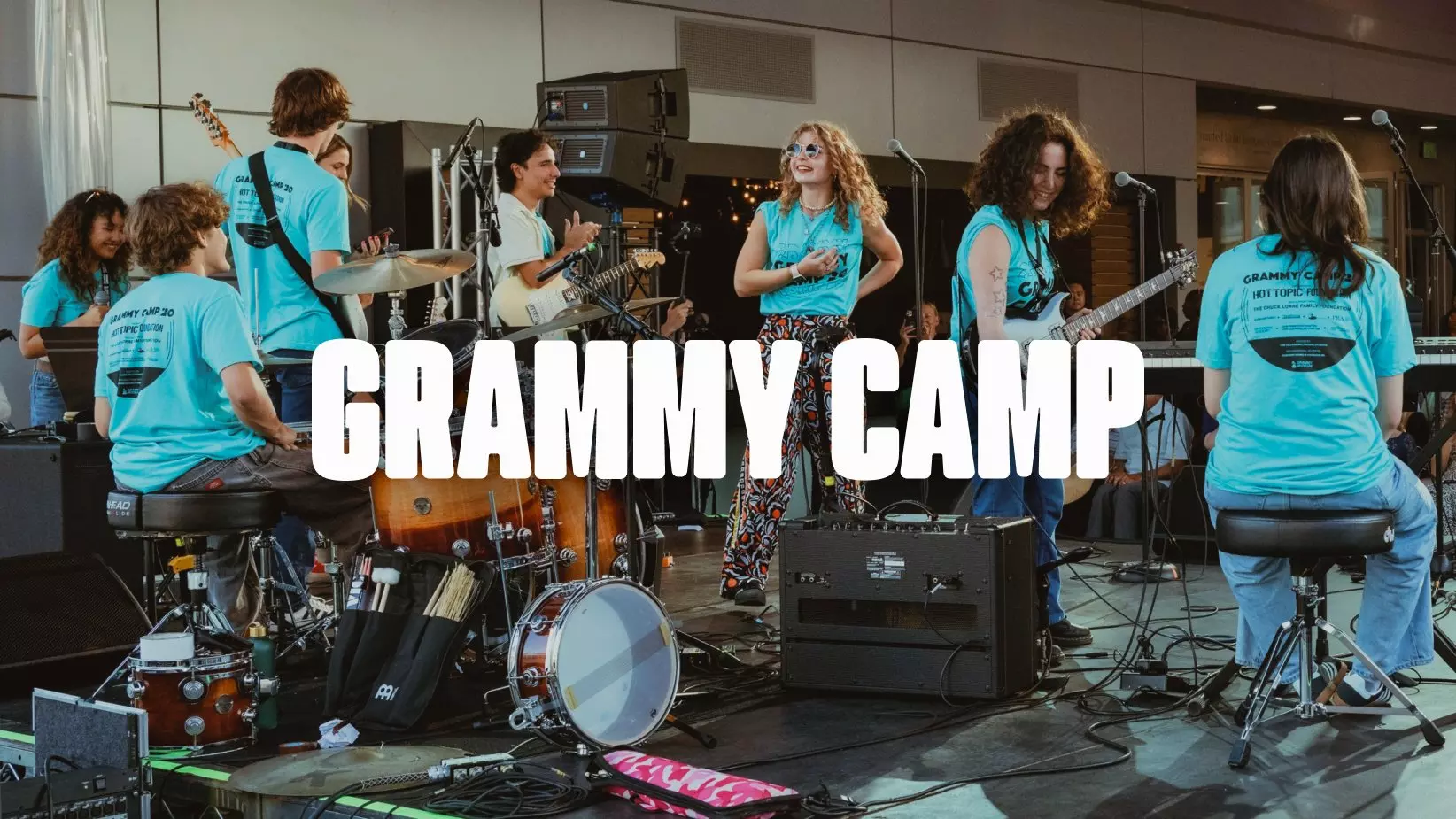
GRAMMY Museum Expands GRAMMY Camp To New York & Miami For Summer 2025
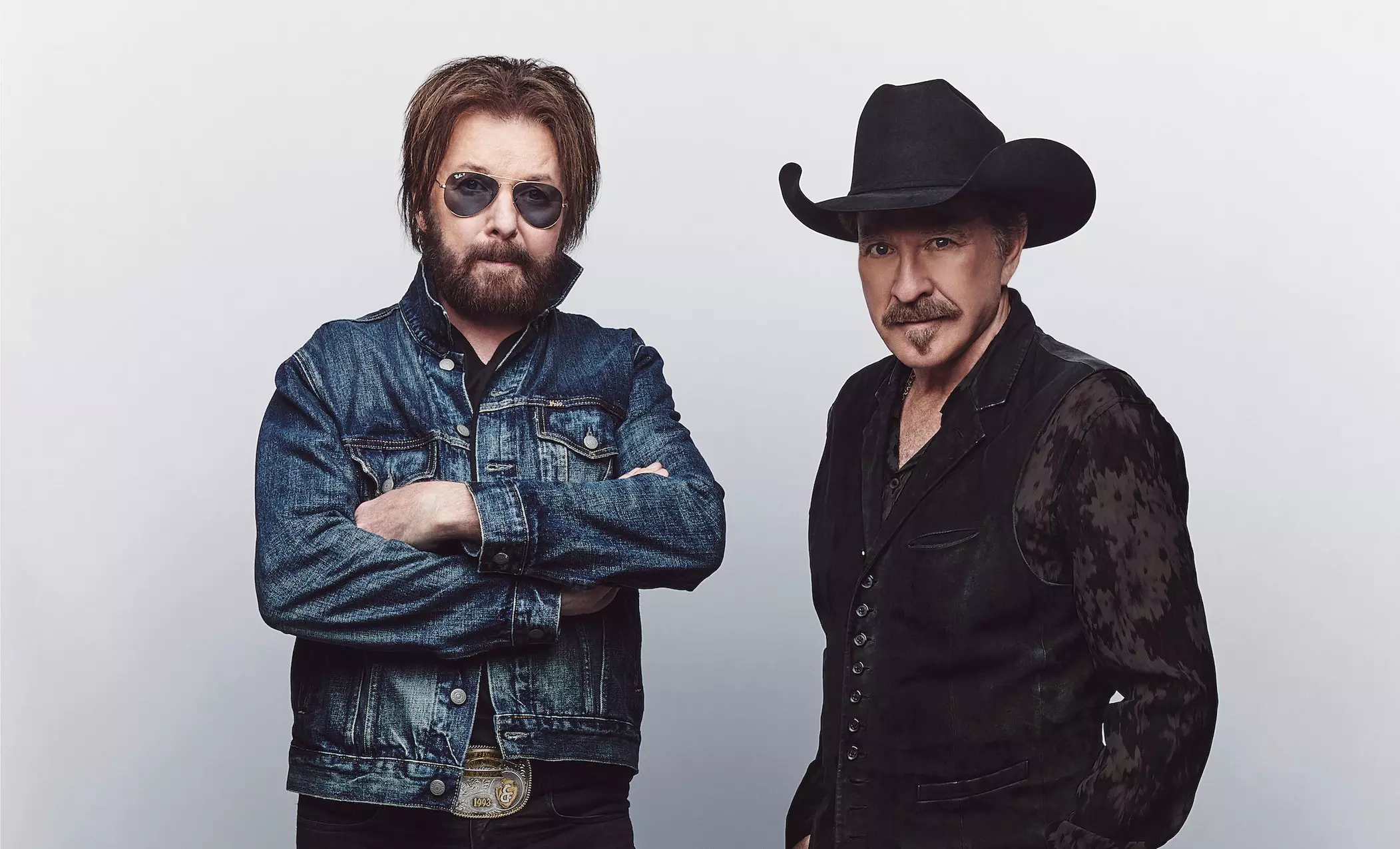
Living Legends: Brooks & Dunn On How 'Reboot II' Is A Continuation Of "Winging It From Day One"
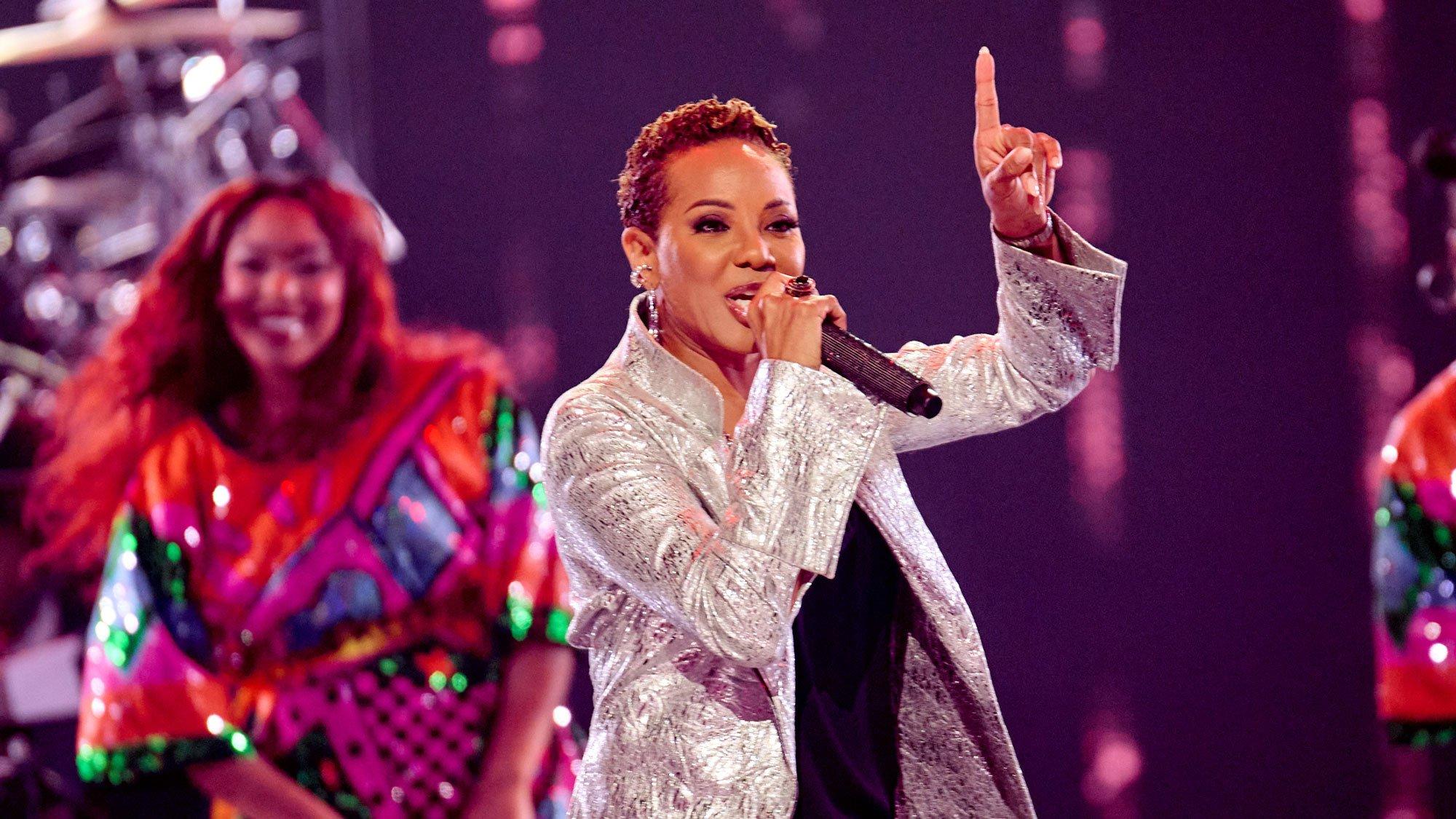
Photo: Derek White/Getty Images
interview
Living Legends: MC Lyte On Her New Album '1 of 1,' Building An Empire & Being The Guiding Light
"What I'm saying is real. And it's important," Lyte tells GRAMMY.com on her groundbreaking work and new release, '1 of 1,' featuring Stevie Wonder, Queen Latifah, KRS-ONE, and more. "It's just real talk, and I think we haven't had that for some time."
MC Lyte is hip-hop's original female emcee. Born in Brooklyn, the multi-hyphenate rapper, actor, entrepreneur, and fearless advocate for women is a pioneering force. Nine years since her last album, Lyte is finally ready to release her ninth studio album, 1 of 1, on Aug. 9.
Lyte is celebrated not only for her conscious lyrical prowess, but also for shattering gender barriers. At 16, she released her debut single, "I Cram to Understand U (Sam)," making a poignant statement about addiction in the '80s. In 1988, she unleashed her debut album, Lyte as a Rock, becoming the first solo female rapper to release a full album.
"[Early hip-hop] was so much freedom that we were able to really make a difference," Lyte tells GRAMMY.com. "That's myself with Heavy D and KRS-One and Rakim and all of the greats having the opportunity to use their voices the way that they wanted to use it."
Her 1993 release, Ain't No Other, earned her (and all female solo rappers) two firsts: the first GRAMMY nomination for "Ruffneck," and the first song to be certified gold. In 1996, she struck gold again with Bad As I Wanna B, featuring "Keep On, Keepin' On" with Xscape. Lyte's ability to illuminate powerhouse female voices in music shines through her collaborations with Janet Jackson on "You Want This" and Brandy's remix of "I Wanna Be Down" with Yo-Yo and Queen Latifah.
Earlier this year, she released two singles ahead of 1 of 1: "Woman," featuring Salt of Salt-N-Pepa, Big Daddy Kane, and Raheem DeVaughn in support of Women's History Month, and "King King" featuring Queen Latifah. Other legends on the new work include Stevie Wonder, KRS-One, Common, Q-Tip, Mary Mary, and Muni Long.
Beyond music, she is also a voiceover artist, actress, and active mentor through her organization, Sunni Gyrl, which focuses on artist development and creative services, and co-founded the Hip Hop Sisters Foundation, to promote positive images of diversity.
Learn more: 9 Teen Girls Who Built Hip-Hop: Roxanne Shante, J.J. Fadd, Angie Martinez & More
Lyte has been honored with a special salute at the 2024 Black Music Honors, received the I Am Hip Hop Lifetime Achievement Award at the 2013 BET Hip Hop Awards, and Harvard University's W. E. B. Du Bois Medal. At the Recording Academy, she has served in multiple roles, including President, Trustee, and Governor of the Los Angeles Chapter.
"I think we've sort of permeated every space of entertainment you can ever imagine," Lyte says of the culture in hip-hop. "Never could I have imagined years ago that we'd be here."
Over Zoom from the set location where she plays Detective Monroe in the BET original series "Angel," GRAMMY.com caught up with MC Lyte to discuss the new album, the source of her limitless passion, and her advice for the next generation.
This interview has been edited for length and clarity.
It's been nine years since you released your last album, Legend. What can fans expect from 1 of 1?
It's executive produced by Warryn Campbell, who by far has won his share of GRAMMYs through his own work and through production for others. But just so happens that he's also my pastor.
When we set out on this mission, I knew that I would feel comfortable enough to stay in the new lane that I have created for myself. It's interesting to now be in this space and not only navigate what's new, but also be at the forefront of what is my career. You know, starting at 16, 17, you're doing everything that everyone else wants you to do. You're standing that way. You're moving in that way. You're wearing this.
But this album, because I'm in a different, spiritual place, it felt good to be in collaboration with Warryn Campbell because there was nothing on it [trying] to be something that I was; something that he sees me being. And I think a lot of times, at least in my experience, producers have said, "Oh, we need to do something that sounded like that," or "You need to attack the mic like you did in that song." It's just a bunch of references made to older things.
So, 1 of 1, to me, is sort of a second coming of age. Where I'm able to stay in my truth and also give inspiration to others who are at a point where it feels like they can't get beyond the ridge.
**Your new single "Woman" was released during Women's History Month and "King King" was recently released with Queen Latifah. Who else shows up on this album?**
I made a lot of calls for this album. A lot of people answered the calls. So we've got some really great talent on the record, which I'm really excited about. We've got Common and Stevie Wonder and Q-Tip.
Our leading charge is a song called "Thank You," and that's with Mary Mary and Muni Long. And I just think, for all of the times where I didn't make the call, making a call at this time feels great to have people answer like, "Yes, I wanna do it." We've hit a space with people wanting to engage without, you know, [dollar] signs.
You've always been such an outspoken proponent of celebrating and sharing the experience of womanhood through your music — why is that so important to you?
I do believe having the opportunity to release music shouldn't be taken for granted. And so with that notion, I always, I guess, even from "I Cram to Understand U," my very first song, I always wanted to record with a purpose.
We recorded ["Woman"] before the pandemic, actually. And we knew that it needed to come out for Women's History Month. So if we missed Women's History Month, we had to wait for the next year. That's the type of focus that we wanted to have on that particular record. I think we were able to achieve it, and it's also one of those songs that we don't hear a lot of these days.
To have a song that celebrates women simply — with a wonderful hook by Raheem Devaughn — but then also seeing what's important to the two women that are in the song, myself and Salt, the perspective that we're coming from is in alignment with the way that a lot of women think. So we wind up speaking not just to them, but for them. Then to have Big Daddy Kane say all that he adores about women is just icing on the cake.
Celebrating 50 Years of Hip-Hop
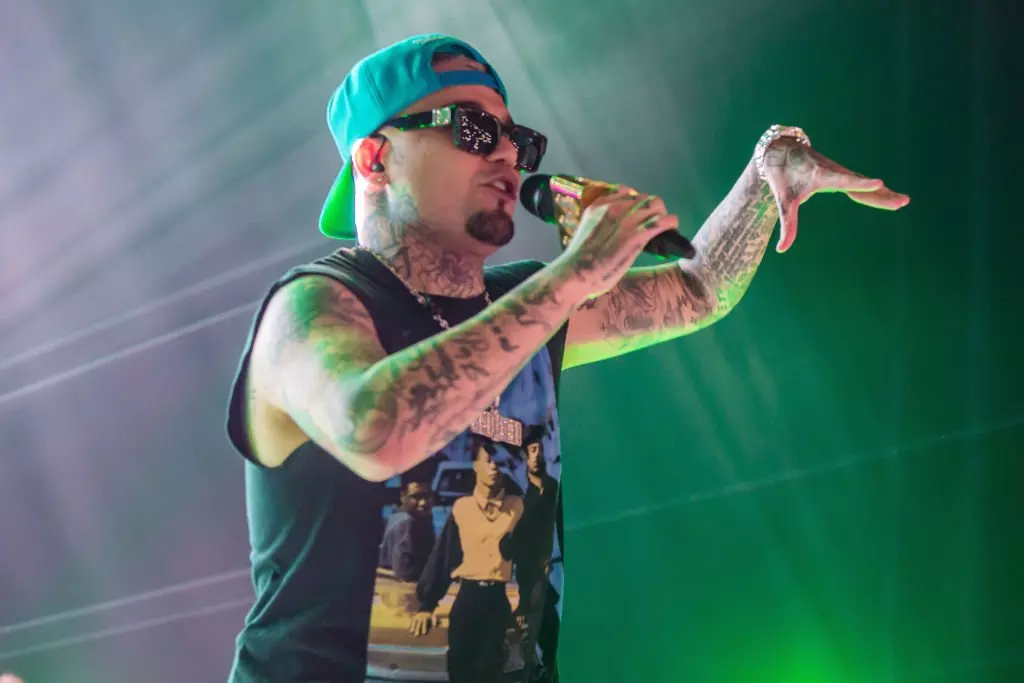
8 Latinx Rappers To Know: Eladio Carrion, Young Miko, Akapellah & More
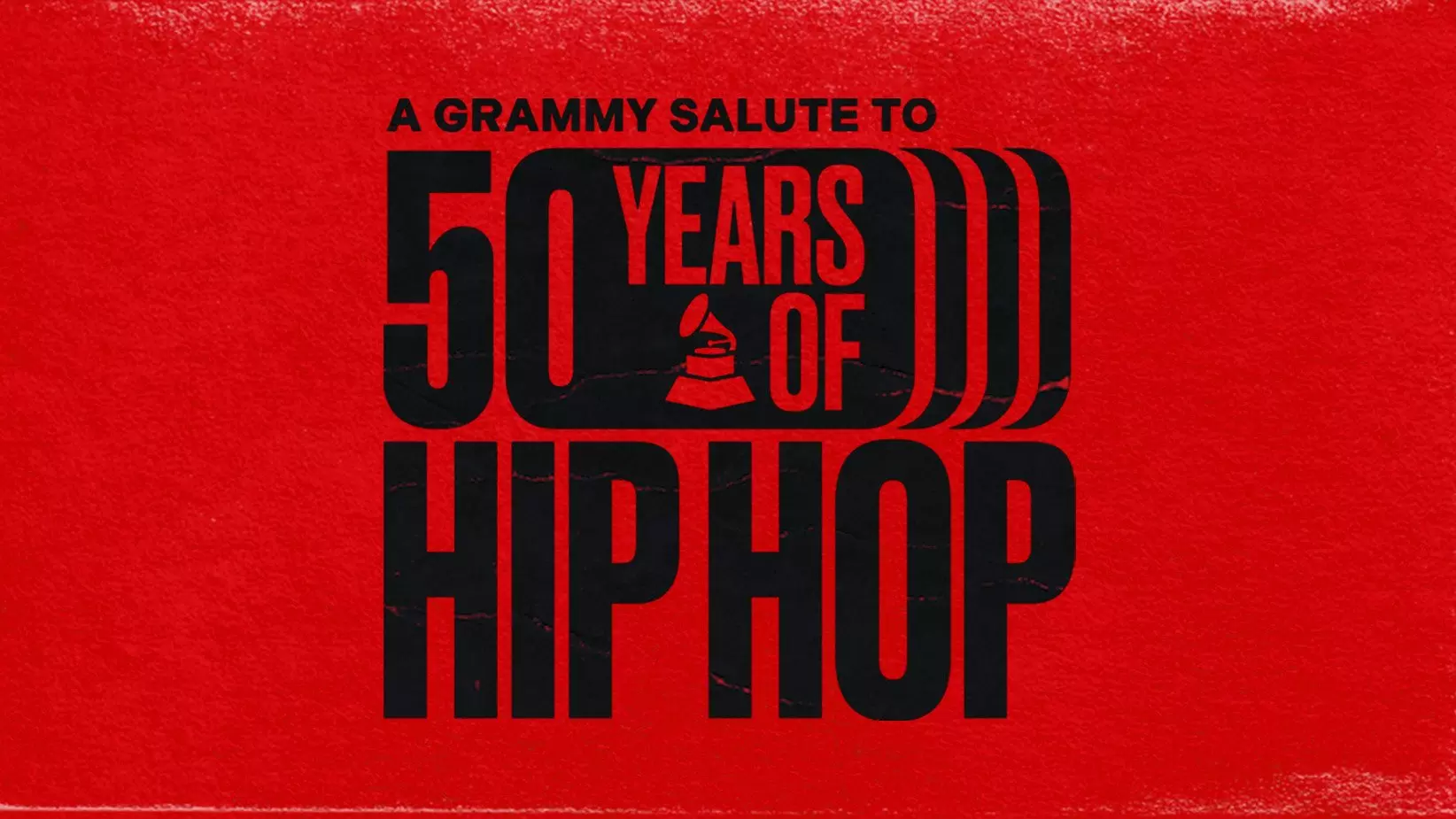
Additional Performers Added To "A GRAMMY Salute to 50 Years of Hip-Hop" Live Concert Special: 2 Chainz, T.I., Gunna, Too $hort, Latto, E-40, Big Daddy Kane, GloRilla, Three 6 Mafia & More Confirmed
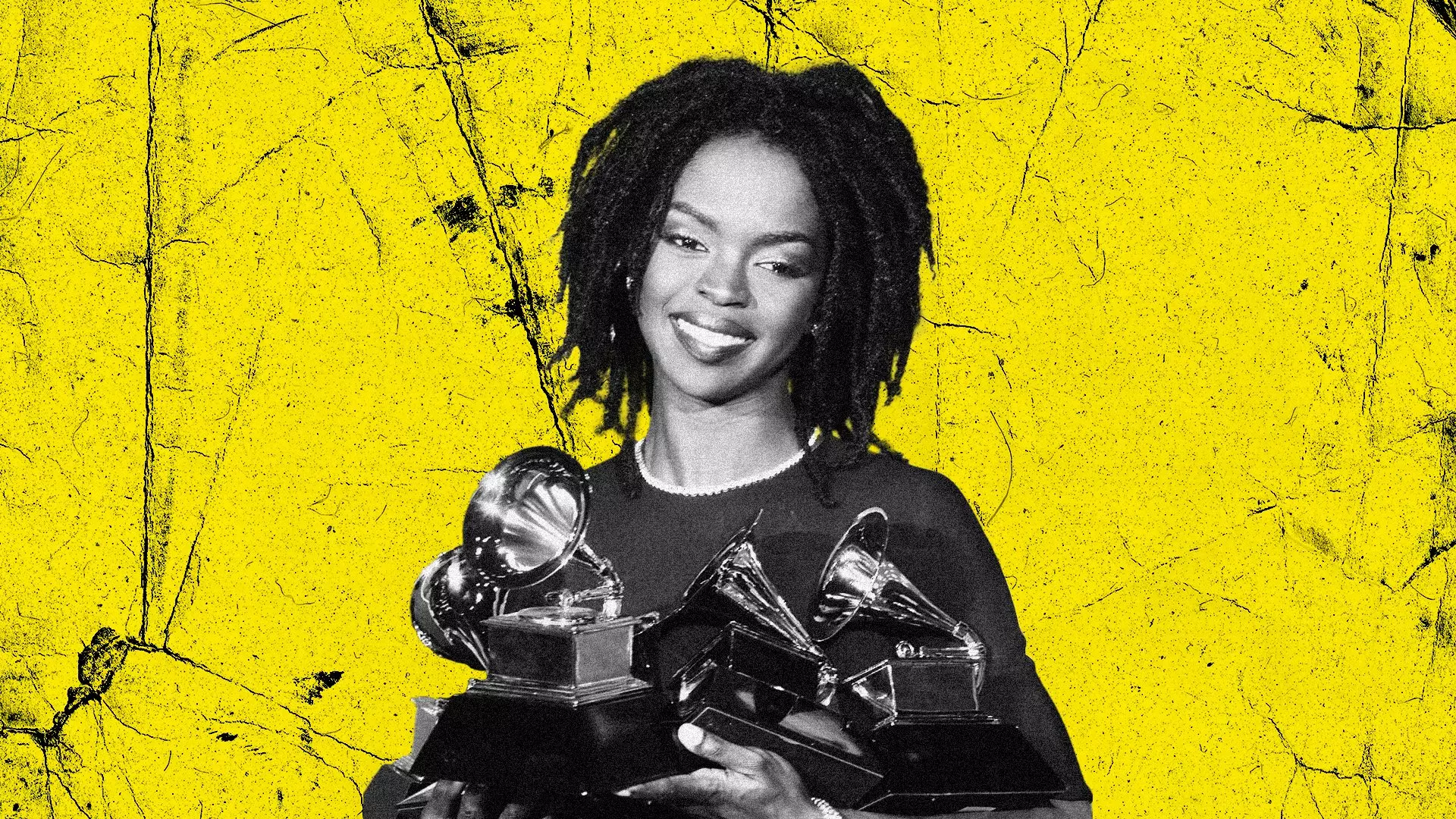
GRAMMY Rewind: Watch Lauryn Hill Win Best New Artist & Quote Scripture In 1999
To bring it all the way up to now to "King King," which wasn't really planned to do as let's do a song for women, and now let's do a song for men. It didn't go like that. And when I tell you that "King King" and "Thank You" I wrote in bed at about 1 o'clock in the morning — it was just God downloading the lyrics so quickly. I couldn't even believe it. As I was writing it, I was like, oh my goodness. It's gonna stop. It won't stop.
Having this kind of conviction for your testimony speaks to the spiritual nature of your music. How else does that influence your work?
It brings people together. I think it just falls to me in a space of responsibility. It's not anything that's separate from me. Often I'll let the music lead me. And if I listen to a track, and it's like, oh, this is great. But it doesn't incite power or purpose, I'll put that track to the side. When I'm ready to just rap about nothing or rap about how dope I am, I'll pick that up. But when I'm looking for something that I want a message attached to it, the music literally will lead me into the place where I need to be open to whatever God puts on my heart.
So much of what is said in "Woman" is who I am. And same thing with "King King," it's what I believe. It's the times when I see guys in huge celebrations when they're winning, you know, trophies for basketball, and it is just like one of the most vulnerable moments to see them as they celebrate with their friends. You can see the pain and the anguish and the triumph and the tears. And it just brings chills all over my body.
To see that from these men that usually have to have these hard faces with this stance that's so mighty and strong. That's how I feel about, specifically men of color. No no one knows him. And so I wanted to celebrate them and then also their walk towards responsibility and not shying away from what it means to be in a long lasting, loving relationship.
What about your relationships with men in hip-hop? I know you and Rakim just performed together on the same stage at Rondos Day in St. Paul, Minnesota.
The interesting thing about Rakim, he's probably one of the emcees I know the least about, on a personal level. But yet, whenever we're in one another's company, we have such a high level of admiration and adoration for one another. It feels like we know one another really well. I really give honor to that. However, there are others like Biz Markie and Heavy D and Chuck D and KRS-ONE. These are my big brothers in the business.
Those are people that would just call me and say, "What is going on? How are you feeling?" Or they'll see some performance… That's Big Daddy Kane. He's gonna tell me, "I like what you was wearing on there," or "I like the energy." It's all of these moments where I am the little sister. You know, they've seen me grow up in this business. And many times over, they've assisted in some capacity.
It's so funny how many layers, relationships exist within hip-hop, and you may not know it because you don't see it. But we know that, you know, that connection is real.
Has your songwriting or creative process evolved through the years?
Yeah. Absolutely. There's a few things that have happened. One, when you're in the spell of writing, stay there. When I was younger…you leave a song open ended to have to try to find the same sentiment days later. And it may not be there. And so [I've learned] to stay still during the writing process. And then I've also learned much more melody than usual.
Coming from New York, we have a way of wanting to put all the words that we can find to show how dope and how advanced we are as emcees. And I think for me to be able to slow down on this record and find melody and nuances that weren't as important to me before, I think that it really benefited me with this record, and that's where I will give the credit to Warryn to push me.
I remember long ago, I was talking to Nelly, and I was about to embark upon a new album. It might have been 14 years ago. But what Nelly began to explain to me, is that "I lived in New York for a summer, you guys moved so quickly. It's no wonder you all rap like that." He said, "Where we're from, we're driving to our destinations." I think that was brought to the forefront for me here with this album. I'm not in a rush. I don't need a lot of tricks with what it is that I'm saying because what I'm saying is real. And it's important. I don't need a lot of influence. You know, I'm simply speaking. It's just real talk, and I think we haven't had that for some time.
You live in Los Angeles now, but do you get back to New York?
I've lived in Brooklyn. I've lived in Manhattan. I've lived in Queens, and I've lived in Jersey. And then I came to California. I've been in California for some time now. But I go back and forth often enough that I don't really feel like I'm missing anything. I'm going back this first week of August, which is pretty exciting, doing a lot of press for the album, and then also, performing at Wingate Park, which is where I attended high school.
**Speaking of, where are we going to see MC Lyte performing soon?**
I'm on the Queens of R&B tour. So we did Atlanta, Charlotte, New York, and then Madison Square Garden. There's going to be a show [in Los Angeles] at the [Kia] Forum. Cincinnati Music Festival, I'm performing out there, and I'm doing "King King," bringing them, you know, some new music at the same time, which is pretty exciting.
You also have a full plate with your other endeavors: acting, voice overs, mentorship. Do you get fuel from these different activities to inspire the other work you do?
Absolutely. I'm actually on set now. I played detective Monroe in a [BET] show called "Angel." I'm on set all week with this.
We have a full fledged production and management company [Sunni Gyrl]. Right now, our premier talent is Van Van, who is an internet sensation turned actor, recording artist. She's actually 5; she just released her first album. She also plays a character called Vancy with Snoop Dogg on Doggyland.
We've got other talent, gospel singers, Dave Hollister. And then production wise, we had a sitcom that I wrote ["Partners in Crime"], and we did some really great things with that with AMC. And now we've got a few deals around town with different projects, TV shows, cooking shows, competitive shows. I just signed on to be music supervisor for a short film called The Memo, by a new company called A Seed Productions and it's pretty powerful. I'm looking forward to all that comes from that.
But, yeah, each day it's a different hat. It makes it completely exciting.
What drives you to continue to commit yourself to mentorship and fostering new talent in the next generation through all that you're doing through Sunni Gyrl?
It just feels it feels like the right thing to do. I don't know any other way. And it's crazy because I meet people all the time that had met me at a younger age. And they say to me, "You said this to me and that really mattered at that time. I wanna tell you what it did for me."
My close friends would call me grandma because I'm always imparting something that can be used later — and I don't even know that I'm really doing it. I'm just talking. It's just the idea of never being afraid to share your weaknesses and your shortcomings. Just being an open book to help someone else get to the next step, the next phase.
There have been some autobiographies that I've read throughout time, and you know the ones that are just ink on the page. And you know the ones that had to see past their tears to actually write it. And that alone is what brings people closer to you. It's the human bond. And if you're willing to just be that open book, so many people can learn from what it is that you're saying. And it may not even be what you're saying. It could be the cornerstone for them to go get the knowledge or, you know, educate themselves about something completely different. I think as an emcee, I have to really be in tune with the power that I have and that words are powerful and have meaning. And so why not use them, responsibly and purposefully?
Can you tell me a bit more about the importance of listening? And have you always felt like a good listener?
No. Even now, it's still a struggle with me. You know, acting is all about listening.
I think a lot of times [what] we do in life is we take the part that incites some sort of reaction, and then we don't even pay attention to what was said before or after. For me, it's important that I slow down in order to listen. Because first off, I'm quick. And so are a lot of other people.
I've tasked myself each and every day with slowing down enough to listen.
Listening during acting has taught me how to listen in life. And that not everything said deserves a response or requires a response. It's the admittance of not knowing that's humbling.
How do you find the energy? What is the source of this well that you're continually pouring from?
The source: God. That's all I can attribute it to, because it's certainly not me. I just allow myself to be used as the vessel to get the thing done. It's a part of the dream. So while I'm doing it, I'm just grateful like, wow. I asked for this. Oh, yeah. And I asked for that. And so I only ask that God give me the wherewithal to handle it as it comes and also to say no to the things that I just don't have time to do and don't fulfill the ultimate goal.
What artists today are you excited about or you're listening to?
I love what Common and Pete Rock are doing right now. Rapsody, Tierra Whack. I listen to a lot of people in terms of Kendrick, in terms of Drake. And, I listen to Tems.
I just hope that the new artists coming in today find their strength at an earlier turn than a lot of us.
A lot of times, I believe artists understand who they are much more when they've gone out into the world and understand how blessed they are to even be in the position to speak their minds. There are plenty of places where not just women, but anyone who wants to speak out against the system, or disagree with a certain politic, or a political stance, or political agenda [cannot].
What other advice would you give a younger you or artists coming up now?
Surround yourself with people that have your best interest. And when you're young, you don't really know who those people are. But I would just say what you see, believe it. And you can see things much better than what you're told. Because people lie. Unfortunately, if everybody told the truth, then I wouldn't have to advise you to watch people show you much better than they tell you anything.
There's always room for improvement and to stay focused on what it is that you started out with. Because many times, there will be distractions. There will be distractions along the way, and you wanna make sure that you reach the intended goal. And know what you're in it for.
More Rap News

10 Facts About MF DOOM's 'Mm.Food': From Special Herbs To OG Cover Art

6 Indian Hip-Hop Artists To Know: Hanumankind, Pho, Chaar Diwaari & More

14 Must-Hear Albums In November: The Cure, Dolly Parton, Jin Of BTS, Ab-Soul, & More

Blxst Reveals His Favorite Studio Monitors

Living Legends: Havoc Talks Mobb Deep’s Legacy & The Double-Edged Life Of A Rapper-Producer
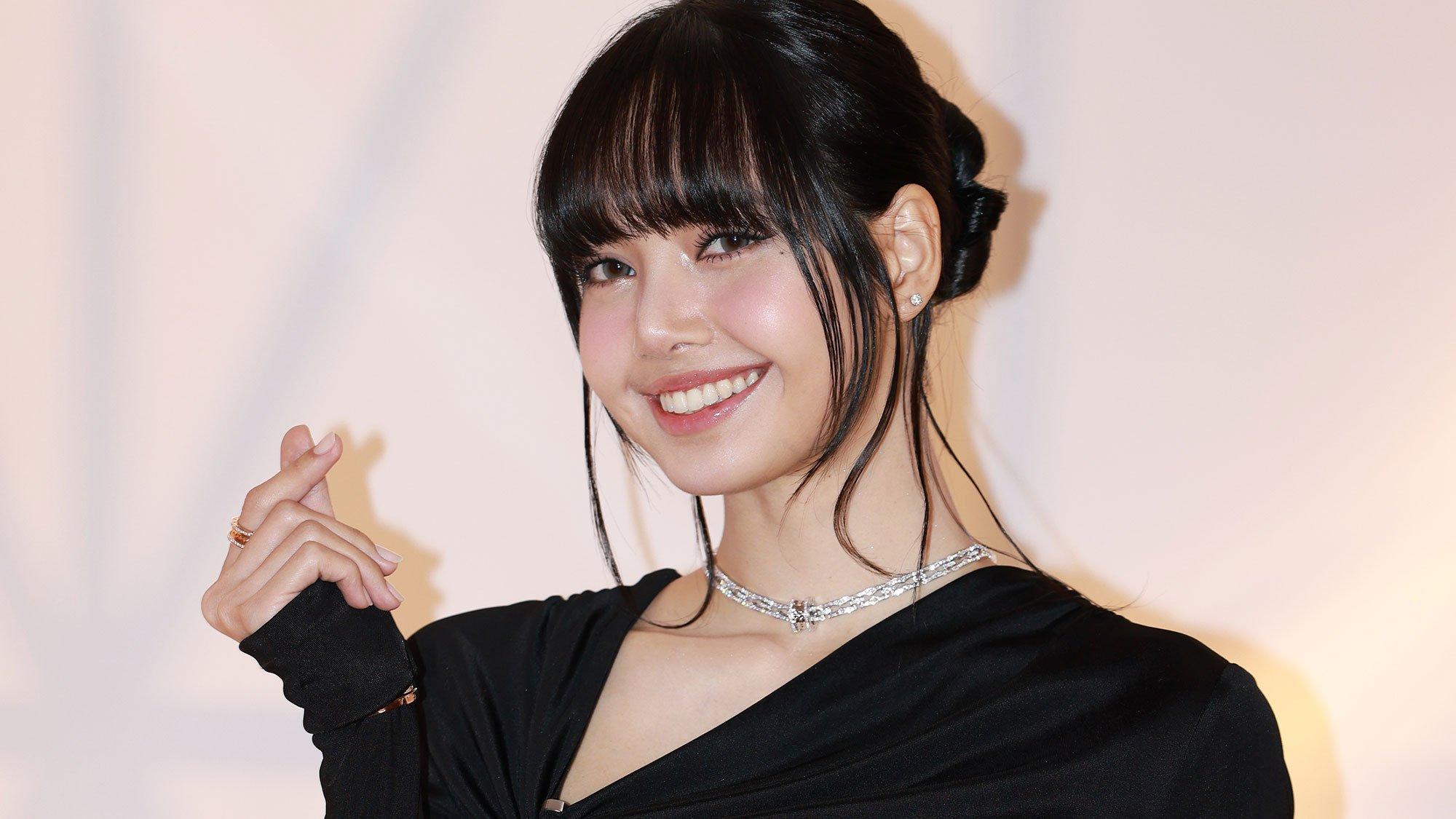
Photo: The Chosunilbo JNS/Imazins via Getty Images
list
New Music Friday: Listen To New Songs From LISA From Blackpink, Lil Nas X, Kelsea Ballerini, MC Lyte & More
Hot summer days require even hotter tunes. Here are some fresh-out-the-oven songs and albums by Hiatus Kaiyote, Lucky Daye, Headie One, Kaitlin Butts, and more.
We’ve been feeling the heat for a minute now, but summer is finally, officially, upon us.
What do you have on deck to soundtrack it? Perhaps you’re checking out Camila Cabello’s fourth offering, C,XOXO. Or Jxdn’s expectations-bucking new album, When the Music Stops. And there are so many other worthy candidates for your playlist — from Lupe Fiasco’s Samurai to Omar Apollo’s God Said No.
No matter where your stylistic compass points, this Friday release day has got something for you. As you gather your sunscreen and shades, let’s breeze through a cross-section of what’s out there.
LISA — "Rockstar"
K-pop loves its solo releases, showcasing how the various members of a group can shine individually while combining with ecstatic chemistry. Enter LISA, one-fourth of Korean titans BLACKPINK, who's already turned heads with her 2021 debut album, Lalisa.
"Rockstar" is another swing outside her main gig, featuring serrated chiptune production and LISA's commanding rap flow. The gritty, urban, futuristic video is a visual treat, and the chorus's boast of "Lisa, can you teach me Japanese?" is a multilingual flex — as well as a maddeningly unshakeable earworm.
Kelsea Ballerini & Noah Kahan — "Cowboys Cry Too"
The "Peter Pan" heavyweight and four-time GRAMMY nominee Kelsea Ballerini has called 2024 "a new chapter of music." Her collaboration with folk/pop singer/songwriter Noah Kahan, "Cowboys Cry Too," is the tip of the spear.
More than a month after the pair performed together at the 2024 Academy of Country Music Awards, their first recorded team-up is an aching, yearning ballad about breaking down a gruff exterior and revealing true emotions.
"Cowboys cry too/ They may not let 'em fall down in their hometown thinkin' they still got s*** to prove," Ballerini sings in the chorus. "That well runs deep/ But when he's showin' his skin, lettin' mе in, that's when he's toughest to mе."
Lil Nas X — "Here We Go!" (from the Netflix film 'Beverly Hills Cop: Axel F')
"So excited to release the best song of all time this friday!," Lil Nas X proclaimed on Instagram. (And on a Beverly Hills Cop soundtrack, no less!)
"Here We Go!" comes at an inflection point for the "J Christ" singer: "sorry I've been so scared with my art lately," he added in the same post. "I'm coming around to myself again. I will make you guys very proud."
This pro forma banger certainly inspires pride: tenacious lines like "I'm livin' and livin' I wanna die/ They tryna get even/ I'm beatin' the odds" will get under your skin. As for Beverly Hill Cop: Axel F, the Eddie Murphy joint will whiz to your screen July 3 via Netflix.
Lucky Daye — 'Algorithm'
Lucky Daye picked up a win for Best Progressive Album at the 2022 GRAMMYs, for Table for Two. After a slew of nominations for work with Beyoncé and Mary J. Blige, he's investigating the Algorithm.
The single "HERicane" was just a teaser, with songs like "Blame," featuring Teddy Swims; "Paralyzed," featuring RAYE;" and "Diamonds in Teal" expanding on and honing his soul-funk-R&B vision.
"Don't know pickin' sides/ 'Cause I'm rollin' in desire," he dreamily sings in the gently roiling "Diamonds in Teal." "I don't know which lie's true/ Or maybe I do, or maybe I'm you." It's a suitable mission statement wrapped in a stealthily seductive package.
Hiatus Kaiyote — 'Love Heart Cheat Code'
A jazzy, soulful, psychedelic band of Aussies, Hiatus Kaiyote has been wowing audiences for more than a decade. Whether through sampling or features, they've crossed paths with Drake, Anderson .Paak, and Beyoncé and Jay-Z.
Love Heart Cheat Code builds brilliantly on their last three albums: their 2012 debut Tawk Tomahawk, 2015's Choose Your Weapon, and 2021's Mood Valiant. Tracks like "Telescope," "Everything's Beautiful," and "Make Friends" are burbling brooks of atmosphere, groove and vibe.
Boulevards — 'Carolina Funk: Barn Burner on Tobacco Road'
Any fans of deep, pungent funk grooves should investigate Boulevards immediately. The project of mastermind Jamil Rashad, their new album Carolina Funk: Barn Burner on Tobacco Road tips its hat to yesterday's funk with a contemporary twist, bringing a refreshing spin on the well-trod template of syncopated basslines and stabbing horns.
Across highlights like "Do It Like a Maniac Part 1&2" and "Run & Move," Boulevards shows — once again — that few can nail this gritty sound quite like Rashad and crew.
Headie One — 'The Last One'
British drill-inflected MC Headie One first made a splash overseas with his 2023 debut album, Strength to Strength. Less than a year later, he's returning with The Last One.
Back in 2022, he hinted at the existence of his sophomore album in his non-album track "50s" — "The fans calling for 'Martin's Sofa'/ It might be the first single from my second," he rapped.
Helmed by that single, The Last One features Potter Payper, Stormzy, Fridayy, Skrillex, and more. The album is a leap forward in terms of production, scale and exploration.
Katlin Butts — 'Roadrunner!'
Any theater kid worth their salt knows at least a few bars from the musical "Oklahoma!"; country sensation Kaitlyn Butts has just unfolded it into an entire album.
"It's a love story but there's also a murder and a little bit of an acid-trippy feel to it at times; it's set in the same place where I come from," she said in a statement, noting she saw "Oklahoma!" with her parents every summer during childhood. "Once I got the idea for this album," she continued, "I couldn't believe I hadn't thought of it before, and it turned into something that completely encompasses who I am and what I love."
A laugh riot as well as a colorful, openhearted statement, Roadrunner! does the old Rodgers and Hammerstein chestnut good.
Read more: 5 Female Artists Creating The Future Of Country Music: Jaime Wyatt, Miko Marks & More
Amaarae — 'roses are red, tears are blue — Fountain Baby Extended Play'
Futurist Afropopper Amaarae made a gigantic splash with her second album, 2023's Fountain Baby — even Pitchfork gave it their coveted Best New Music designation.
That lush, enveloping album just got an expansion pack: roses are red, tears are blue — A Fountain Baby Extended Play is a continuation of its predecessor with six new songs. The oceanic "wanted," featuring Naomi Sharon, is a highlight, as is a remix of "Disguise" with 6LACK.
"Ooh, I'll be wanted/ I've been wanted," a pitch-shifted Sharon sings near the end, as if turning over the phrase. "Wanted" is one way to describe Amaraae's position in the music landscape.
Learn more: Meet The Latest Wave Of Rising Afrobeats Stars: AMAARAE, BNXN, Oladapo & More
MC Lyte — "King King" (feat. Queen Latifah)
The 50th anniversary of hip-hop may have come and gone, but hip-hop is forever. Today, legendary hip-hop pioneers MC Lyte and Queen Latifah continue to bear the flame of the genre as an elevating force with "King King," a conscious, uplifting offering.
"This is dedicated to all the kings and all the soon to be kings/ We're counting on you/ We love you/ This is for you, you and you and you," MC Lyte begins, while Latifah holds it down on the chorus with "This your crown hold it/ Even if it all falls down show it/ You know the world is watching now I know you get tired from keepin' it all together/ We need you."
During Women's History Month in March, MC Lyte released "Woman," the first single from her upcoming album, featuring hip-hop icons Salt (of Salt 'N Pepa), Big Daddy Kane, and R&B singer Raheem DeVaughn. MC Lyte's first new album in nearly a decade drops this summer; keep your eyes and ears peeled.
Learn more: 9 Teen Girls Who Built Hip-Hop: Roxanne Shante, J.J. Fadd, Angie Martinez & More
Latest News & Exclusive Videos

How Major Lazer's 'Guns Don't Kill People…Lazers Do' Brought Dancehall To The Global Dance Floor

YOASOBI Performs "Idol" | Global Spin

'Wicked' Composer Stephen Schwartz Details His Journey Down The Yellow Brick Road

GRAMMY Museum Expands GRAMMY Camp To New York & Miami For Summer 2025

Living Legends: Brooks & Dunn On How 'Reboot II' Is A Continuation Of "Winging It From Day One"
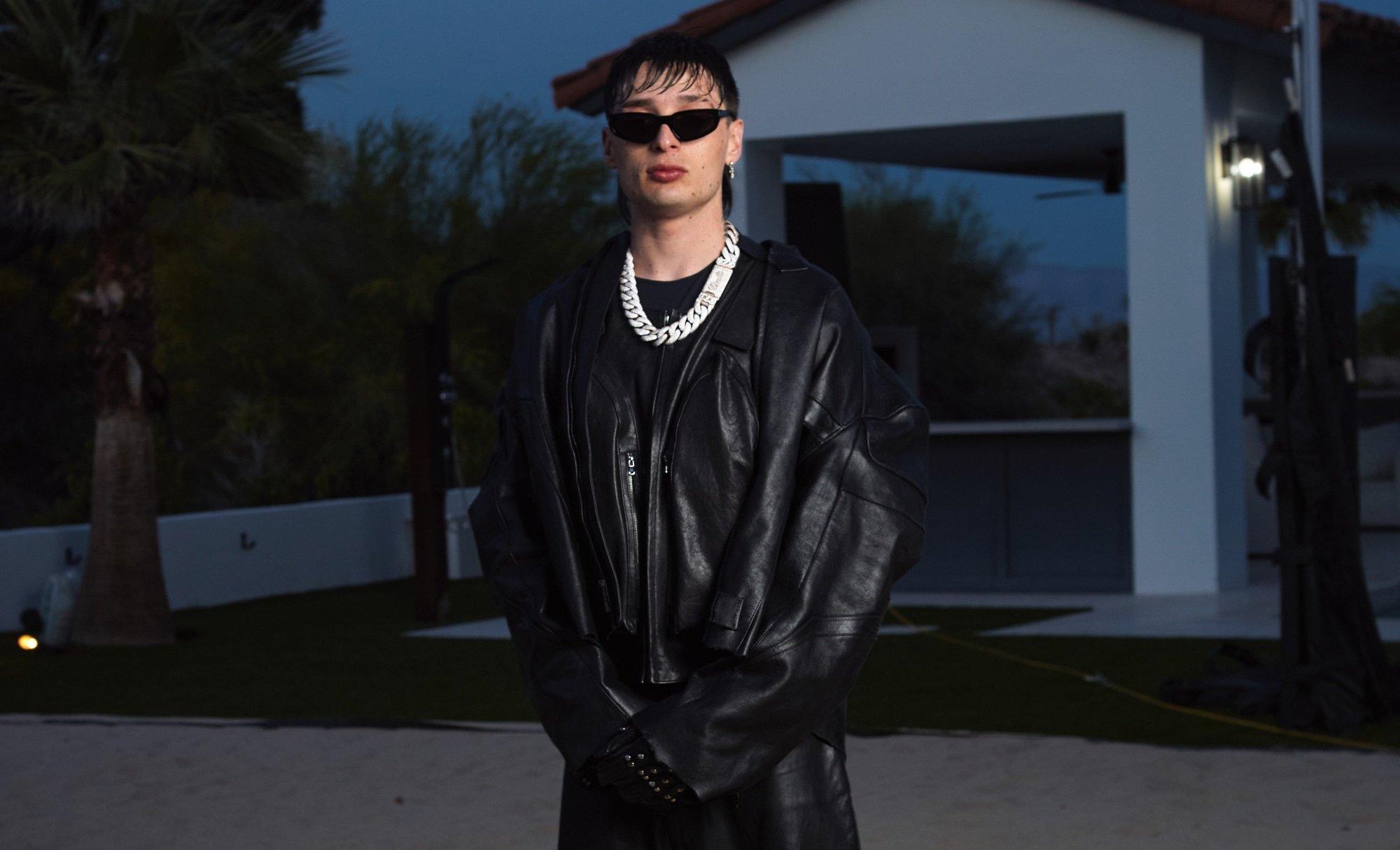
Photo: Arenovski
feature
Peso Pluma's Road To 'ÉXODO': The GRAMMY Winner Navigates The Consequences Of Global Stardom On New Album
"Fans really get to see the other side of the coin; there are two sides to me. It's darker, rawer," Peso Pluma says of his latest album 'ÉXODO'
Peso Pluma marked his musical destiny with a Tupac tribute tattoo in the center of his clavicle: "All Eyez On Me."
The Mexican artist, born Hassan Emilio Kabande Laija, doesn't remember exactly what year he inked his chest. He knows it was well before his debut in music. Those four words reflected Peso's irrefutable confidence that the world's eyes would eventually be on him.
The world's eyes are indeed on Peso Pluma. In less than two years, the singer achieved global fame by singing corridos tumbados, traversing a path never before trodden by a música Mexicana artist.
At 25, Peso Pluma is at the forefront of a new generation of música Mexicana artists that have successfully modernized traditional Mexican rhythms, such as corridos, by infusing them with elements from urban music and a hip-hop aesthetic. The weight of representing an entire genre and a country could be great for some. But pressure doesn't affect Peso Pluma; on the contrary, it motivates him to keep working to exalt his roots.
"We've come a long way, but we still have a long way to go. And that doesn't mean we have to slow down; it doesn't mean everything is over. This is the beginning of everything," Peso Pluma said in a TikTok video before a performance at the Toyota Arena in Ontario, Canada, a little over a year ago.
Out June 20, Peso's extensive new album ÉXODO seeks to cement his global star status further. Over 24 tracks, the singer continues to explore corridos tumbados and digs into his urban side via much-awaited collaborations with reggaeton and hip-hop icons. Among those big names is Peso's teenage idol, the American rapper and producer Quavo, as well as further afield collaborations with Cardi B.
"ÉXODO is a project I've been working on for over a year before we even won the GRAMMY. GÉNESIS was an incredibly special project, and I knew we couldn't make the same diamond twice," the singer tells GRAMMY.com in a written interview.
Peso Pluma's path to the global stage has been lightning-fast. While he started releasing songs in 2020, Peso will remember March 2023 as the month that propelled him into global mega-stardom. His collaboration with Eslabón Armado on "Ella Baila Sola" led him to become a household name outside his native Mexico.
The hit resonated with an audience eager for new sounds, accompanying social media videos and surpassing a billion streams on Spotify. "Ella Baila Sola" became the first Mexican music track to top the platform's global chart. On Billboard, it conquered No. 1 on the magazine's Global 200 chart for six weeks and reached the coveted No. 4 spot on the Hot 100 chart. The mega-hit took Peso Pluma and Eslabon Armado to make their Latin GRAMMY stage debut in November with an electrifying performance.
Another collaboration, "La Bebe (Remix)" with Mexican reggaeton artist Yng Lvcas, released a day after "Ella Baila Sola," also contributed to Peso Pluma's virality in a completely different genre, but one in which he feels comfortable: urban music.
Learn more: Peso Pluma's 10 Biggest Collabs: From "Bzrp Sessions" To "Ella Baila Sola" &"Igual Que Un Ángel"
As Peso Pluma gained traction with a global audience, his February 2022 single with Raúl Vega, put him, for better or worse, on the map in Mexico. The warlike content of "El Belicón" lyrics and video clip attracted attention for the way it allegedly promoted narcoculture.
Despite growing criticism, Peso Pluma remained tight-lipped regarding references to high-profile members of the Mexican drug trade, as well as drug use and trafficking. In a rare admission to GQ magazine, the singer explained this is a "delicate subject to talk about, but you have to touch on it with transparency — because it's the reality of things."
"In hip-hop, in rap, just like in corridos, and other urban music like reggaeton, it talks about reality. We're not promoting delinquency at all. We're only talking about things that happen in real life," the singer explained.
With the success of "El Belicón" and "Ella Baila Sola" under his belt, Peso Pluma released GÉNESIS in June 2023. Despite being his third album, Peso considers it his true debut in music.
"I didn't want to delete my previous albums [Efectos Secundario and Ah Y Que?] because they represent my beginnings," Peso told Billboard in a cover story published a few weeks after the release of GÉNESIS. In the same conversation, the singer said he saw himself winning his first GRAMMY and breaking more records.
Read more: 5 Takeaways From Peso Pluma's New Album 'GÉNESIS'
In February 2024, Peso Pluma did just that. He took home the golden gramophone for Best Música Mexicana Album (Including Tejano) — his first GRAMMY Award. This victory didn't weigh on him as he approached his next production. "It pushed me to want to create something different that the fans haven't heard from me before," Peso Pluma tells GRAMMY.com.
While GÉNESIS and ÉXODO may differ in substance, they share similarities beyond music. That both records pull from the Bible for their names is not a random occurrence; the opening book of the Hebrew and Christian Bible delves into the genesis of creation, while the Book of Exodus explores the themes of liberation, redemption, and Moses' role in leading the Israelites through the uncharted waters of the Red Sea.
"ÉXODO is the continuation of GÉNESIS, which was the beginning," Peso Pluma explains to GRAMMY.com. "ÉXODO means new beginnings, a new era for me. We are preparing for the next chapter, and that's what we are doing for Mexican music, paving the way, laying the groundwork for what's next because it doesn't stop here."
His "sophomore" album is divided into two discs: the first is corridos, and the second is urban. It also continues the line of collaborations, with twenty tracks where Peso Pluma shares the limelight.
"Some of my fans were craving música Mexicana, and some were craving urbano, and I wanted to give them everything while still staying true to myself and choosing songs and lyrics that spoke to me," he continues.
ÉXODO's disc one starts with "LA DURANGO," the album's fourth single, featuring Eslabon Armando and Junior H. In the record, he also invites collaborators such as Natanael Cano and Gabito Ballesteros for "VINO TINTO" and Mexican rising star Ivan Cornejo on the melancholic "RELOJ," among others.
For Side B, Peso enlisted heavyweights from the urban genre in the Anglo and Latin markets: Anitta in the steamy "BELLAKEO," Rich The Kid in the bilingual "GIMME A SECOND," and Quavo in the existential trap "PA NO PENSAR." Cardi B, Arcángel, Ryan Castro, Kenia OS, and DJ Snake complete ÉXODO's genre crossover.
In ÉXODO, luxury, drugs, alcohol, and women continue to take center stage in the lyrics, accompanied by fast-paced guitar-driven melodies and reverb-dense vocals. However, the production sheds light on the vulnerable side of Peso and explores the unexpected consequences of becoming globally famous.
"Fans really get to see the other side of the coin; there are two sides to me. It's darker, rawer," Peso says about the record.
In the songs "HOLLYWOOD" and "LA PATRULLA," for example, Peso details how this musical path keeps him up at night, as well as his aspirations, and how he remains the same despite his success.
Perhaps one of the deepest and rawest songs on the album is "14:14," a track inspired by the Bible verse 14:14 from the Book of Exodus, which, the singer explains, was fundamental amidst the turbulence he faced on the way to global stardom.
"[The] verse 14:14 says 'The LORD will fight for you; you need only to be still.' This verse couldn't be truer," Peso Pluma says. "Over time, I learned to really trust in this and believe that some things are not up to me and I should trust the process."
In the song — one of the few on the album without a collaboration — Peso references the challenges of his profession and how his faith has kept him afloat amid the vicissitudes. "Things from the job that no one understands/I hide the rosary under my shirt so I don't poison myself, so I don't feel guilty/because whatever happens, the Boss will forgive me," he sings.
In "BRUCE WAYNE," Peso Pluma croons about the passionate feelings his career arouses: "First they love you, and then they hate you/wishing the worst, envy and death," the song says.
The singer resorts to comparing himself to a superhero figure again. In an unusual twist, Peso crosses comic universes, moving from his now traditional reference to Spider-Man to one from the DC Comics world: Bruce Wayne, Batman's secret identity. A wealthy man, part of Gotham's high society, Bruce Wayne is known for transforming his darkness into power while remaining reserved and isolated.
"Everyone has two sides of them, even me," Peso tells GRAMMY.com. "Peso Pluma on stage is a high-energy person, someone who is powerful and dominates a show and isn't afraid of anything. And then there is Hassan, who's chill and more relaxed and who deals with all the realities of life."
During the year and a half it took him to complete ÉXODO, Peso Pluma had to deal with the diverse nuances of a global star's life, including a widely publicized breakup from Argentine rapper/singer Nicki Nicole, the cancellation of one of his shows in October 2023 after a Mexico drug cartel issued a death threat against him, and a media frenzy over his alleged admission to a rehabilitation clinic, the latest a rumor he laid to rest during a March interview with Rolling Stone for his Future of Music cover story.
"The reality is, all these days, I've been in the studio working on ÉXODO," the artist explained to Rolling Stone.
Most of 2023 was a successful balancing act for Peso Pluma, who combined touring, an album release, rare media engagements, two Coachella appearances, all the while developing another record. According to the singer, ÉXODO was created in Los Angeles, Miami, New York, and Mexico. "We go to the studio everywhere!" Peso says. "It doesn't really matter where we are; I love to get into the studio and work when we have free time."
Like GÉNESIS, ÉXODO will be released via Peso Pluma's Double P Records, of which he is the CEO and A&R. Much of the talent the Mexican singer has signed to his label took part in the album's production, and songwriting process.
"For the Mexican music side, I had the whole [touring] band with me; I like to have them involved in the process so that we can all give our input on how it sounds, discuss what we think needs to be changed, create new ideas," he explains.
Peso Pluma knows that echoing the success of 2023 is no easy task. He was the most streamed artist in the U.S. on YouTube, surpassing Taylor Swift and Bad Bunny, and was the second most-listened to Latin artist in the country, amassing an impressive 1.9 billion streams, according to Luminate.
Música Mexicana emerged as one of the most successful genres in 2023, witnessing a remarkable 60 percent surge in streaming numbers, adds Luminate's annual report, crediting Peso Pluma along Eslabon Armado, Junior H, and Fuerza Regida as part of this success.
Collaborations on and off the mic have undoubtedly played a significant role in the rise of Música Mexicana on the global stage. Peso knows that the key to continuing onward is teaming up with renowned artists inside and outside his genre.
"All of us coming together is what pushed música Mexicana to go global," the singer affirms. "We showed the world what Mexico has to offer, and now no one can deny the power and talent we have in our country."
